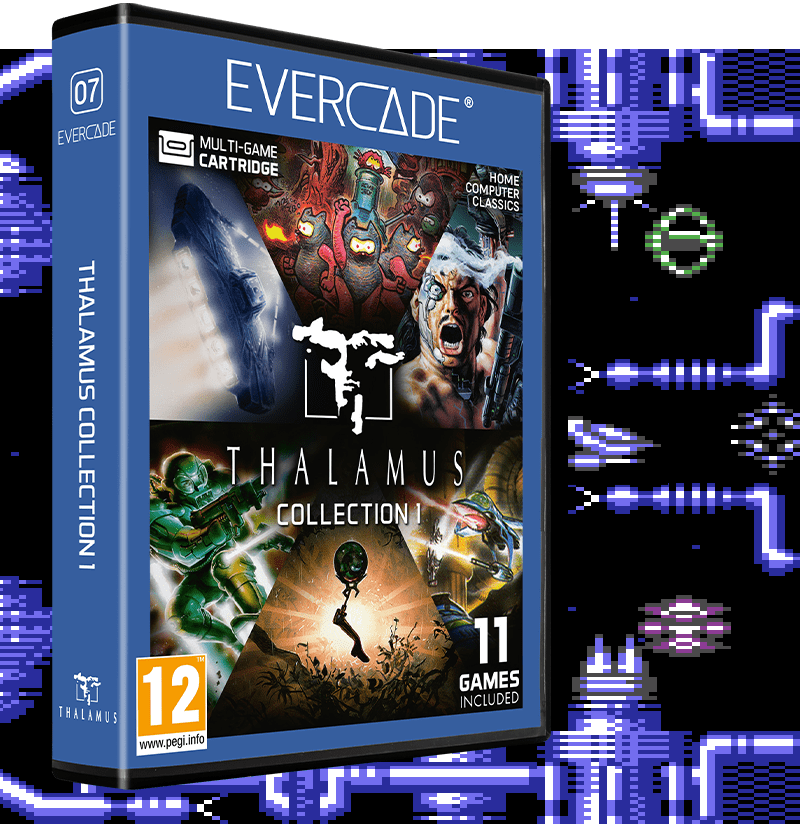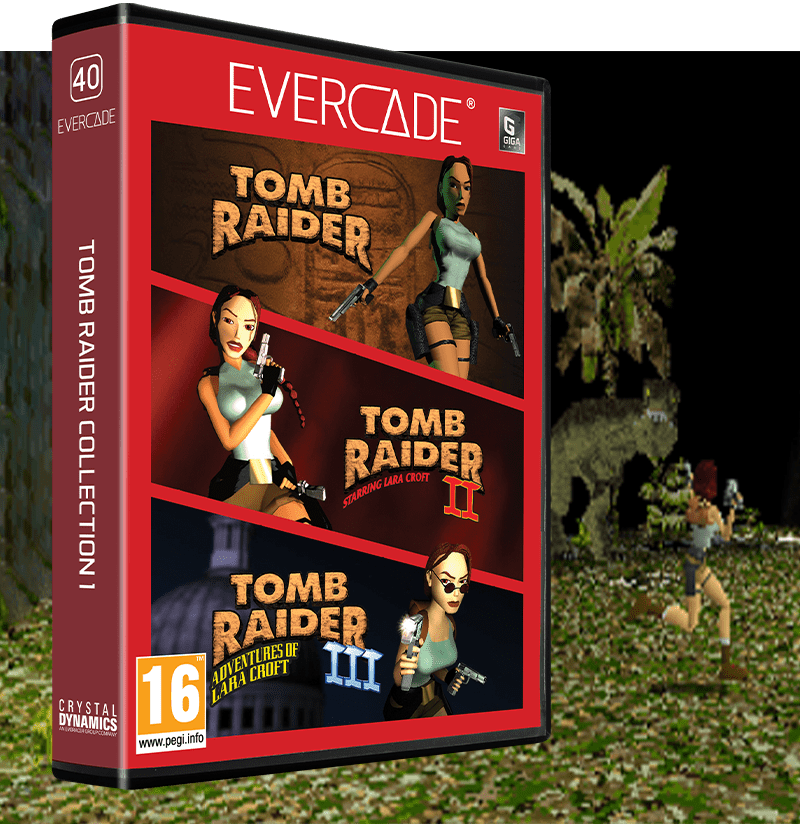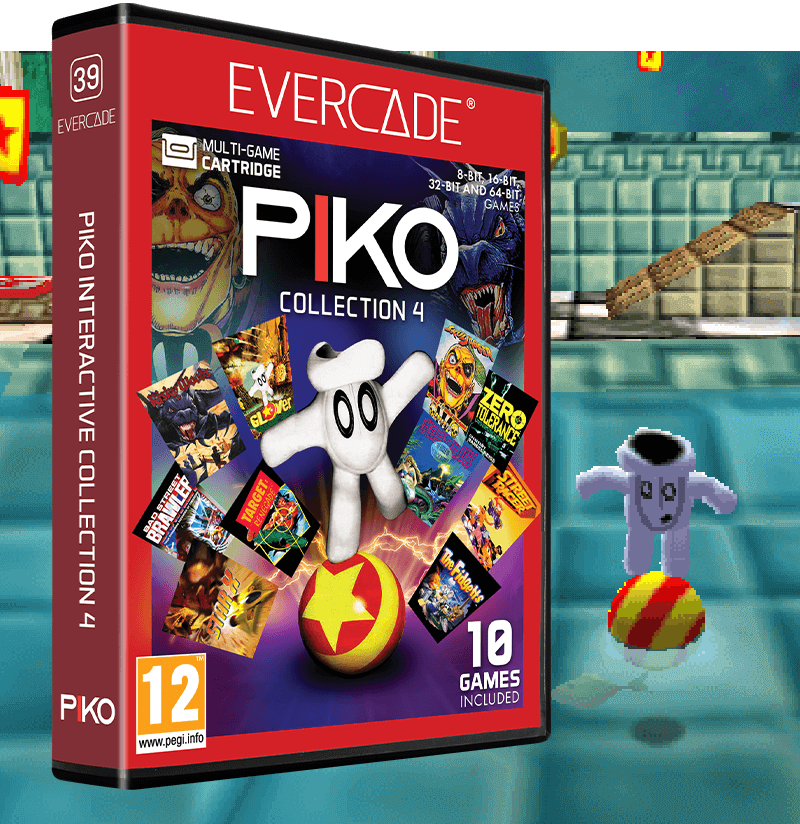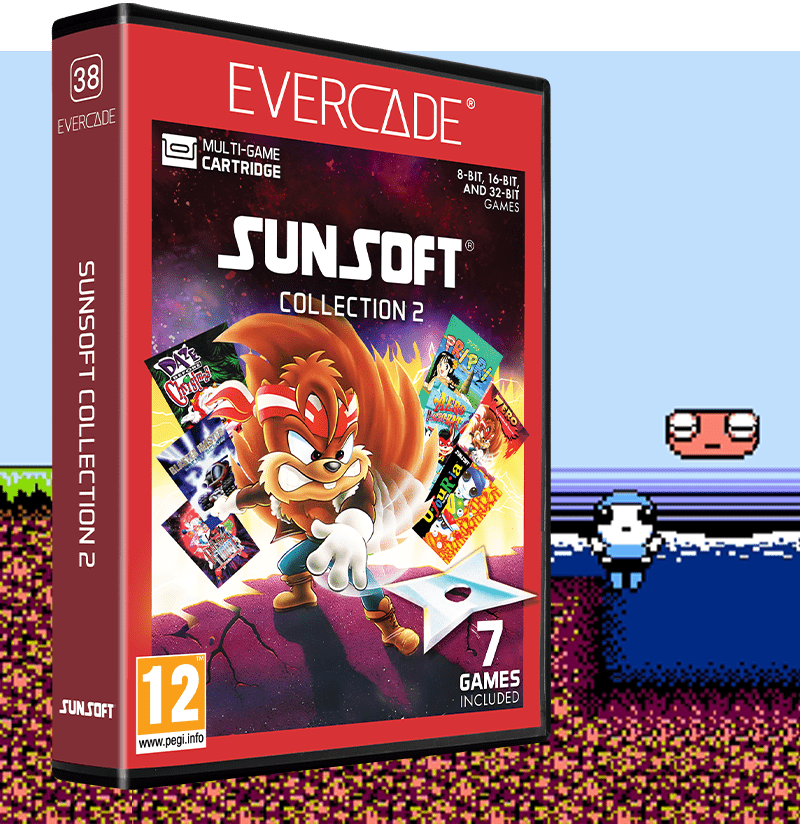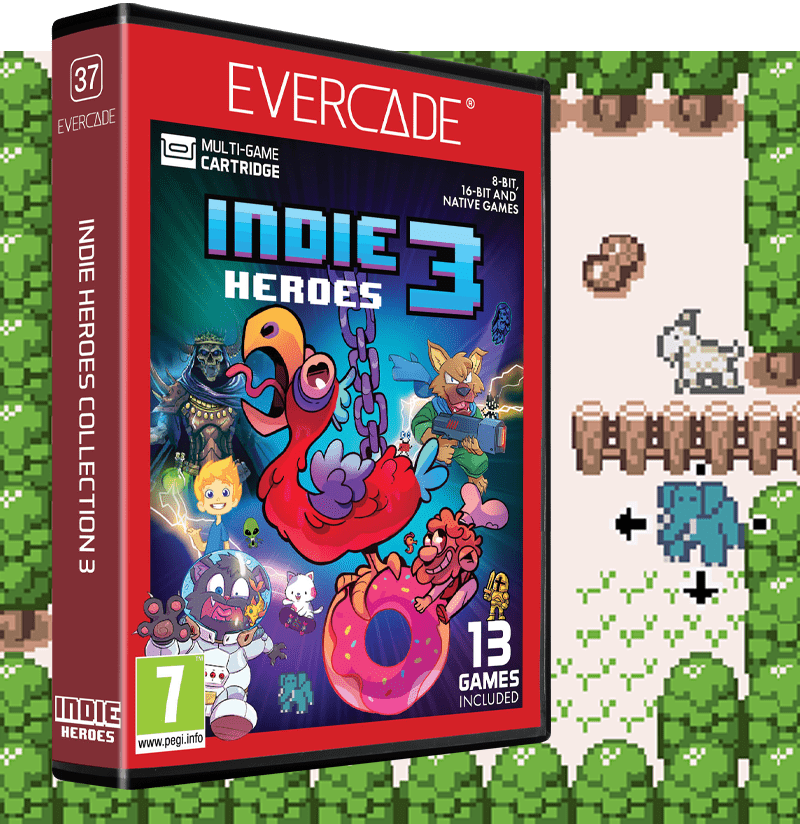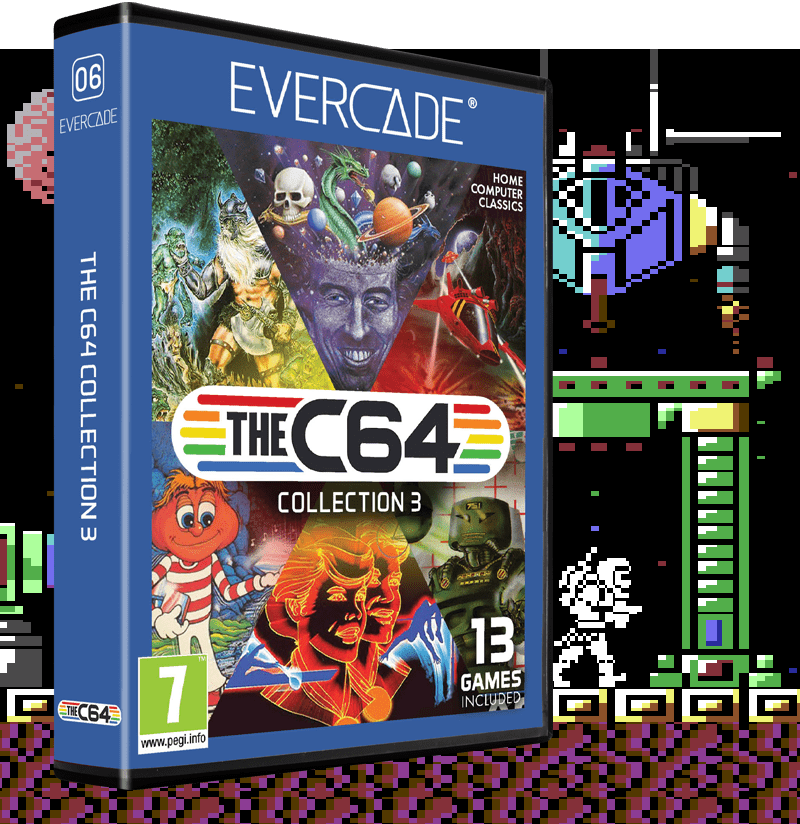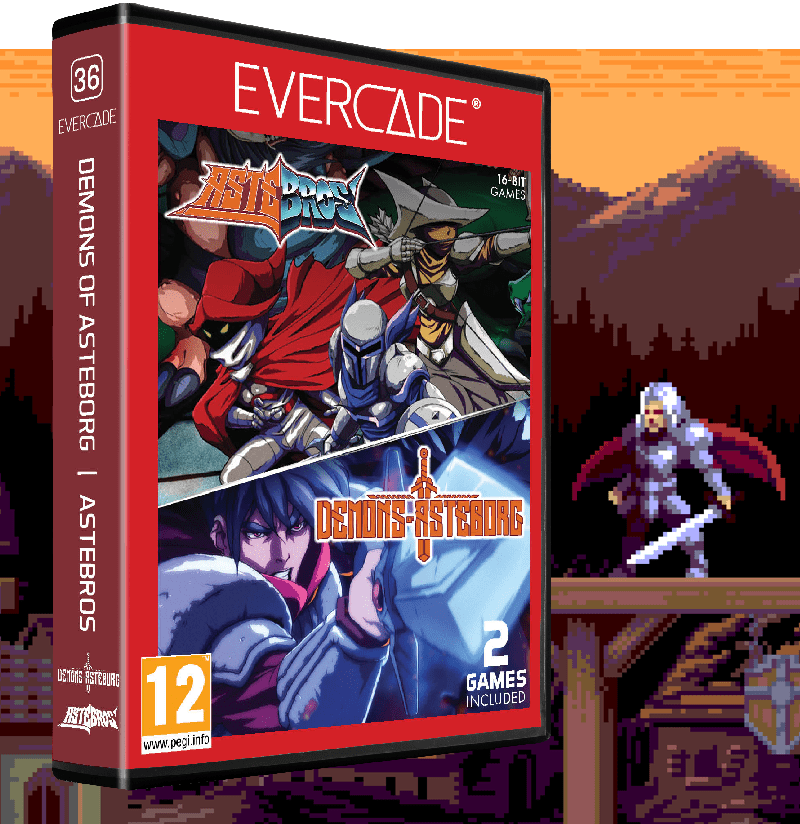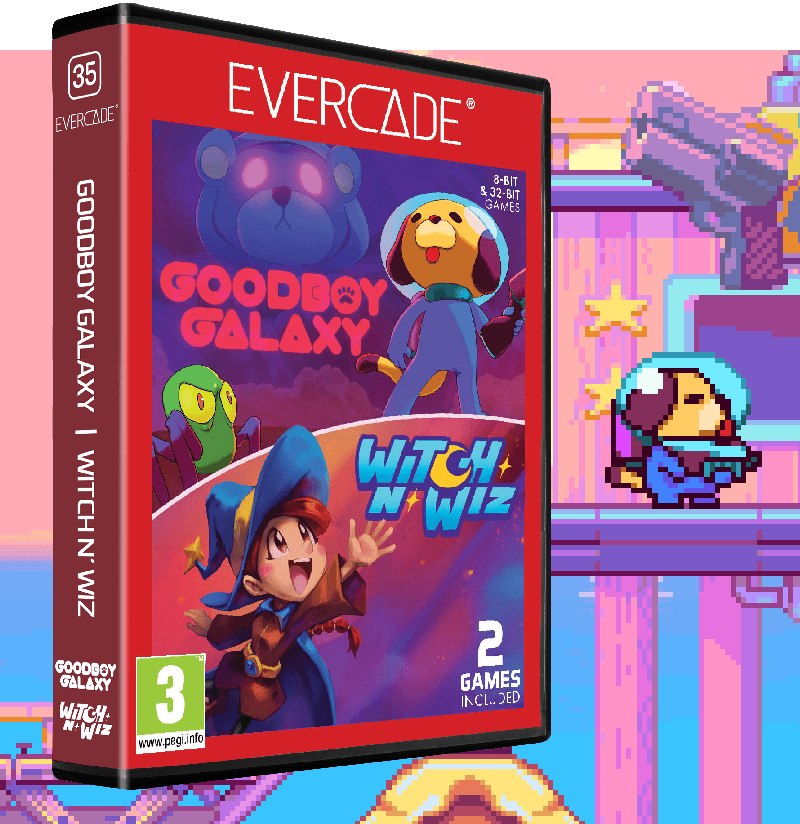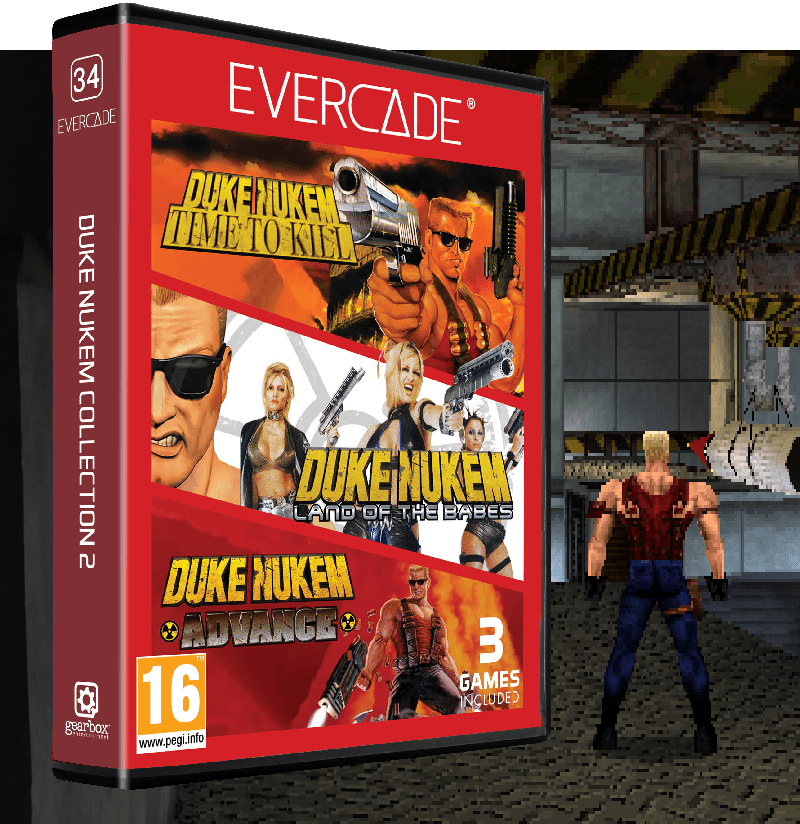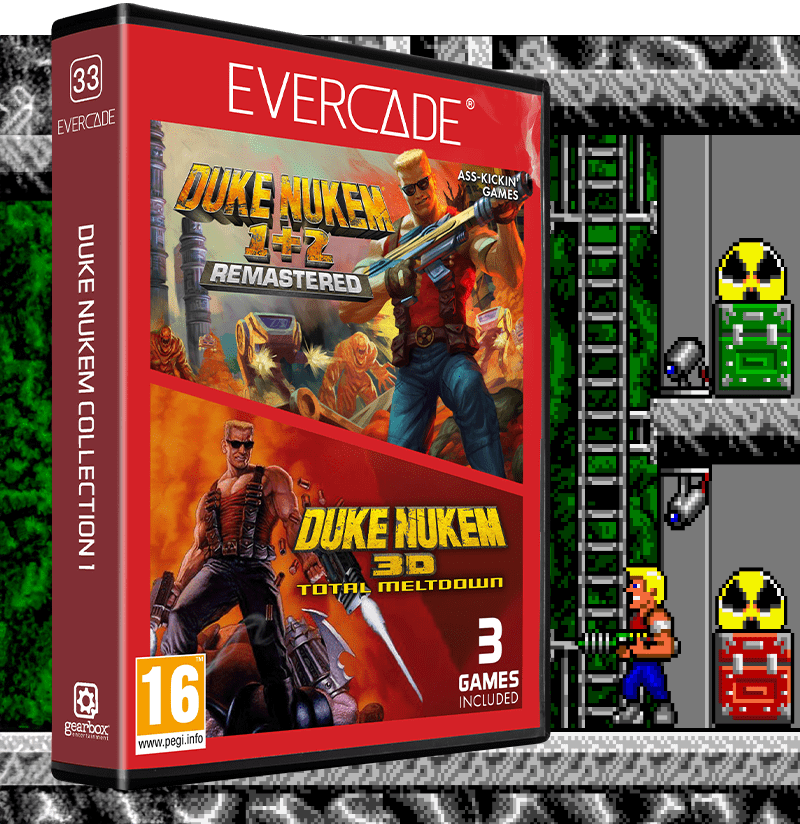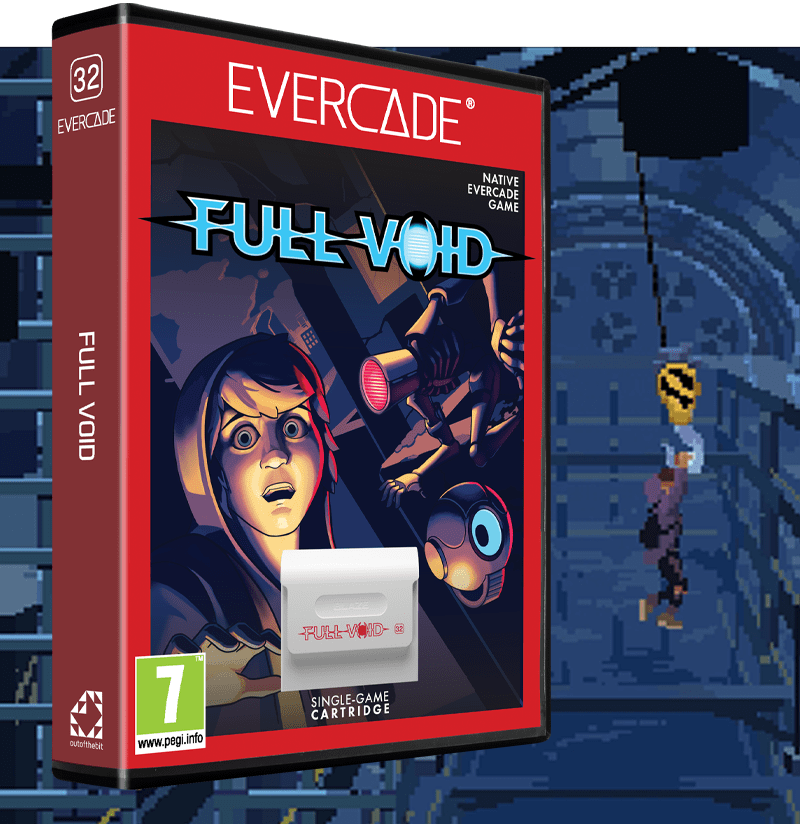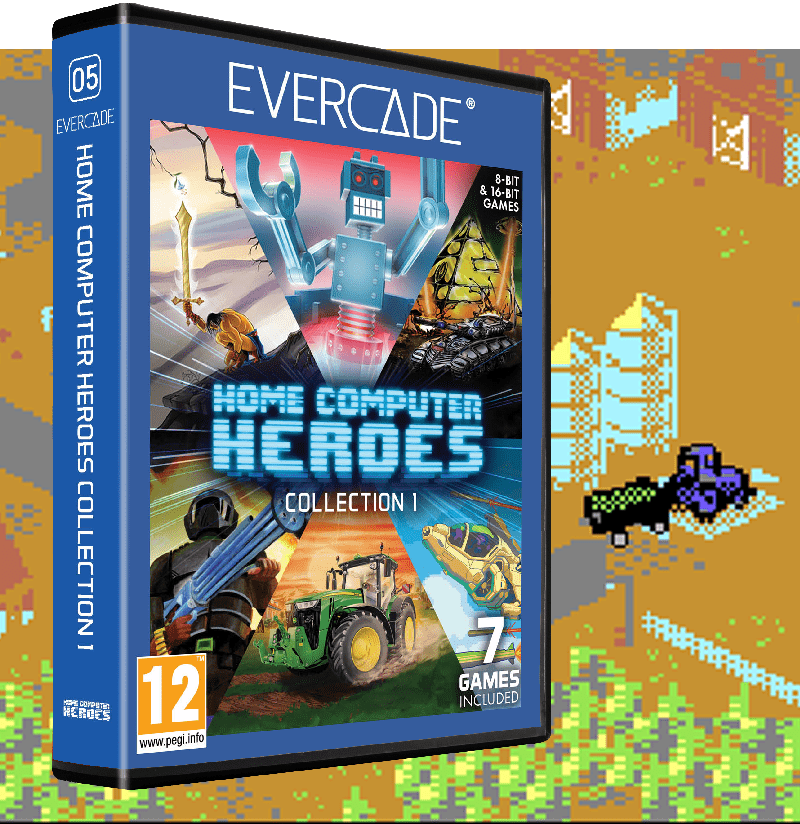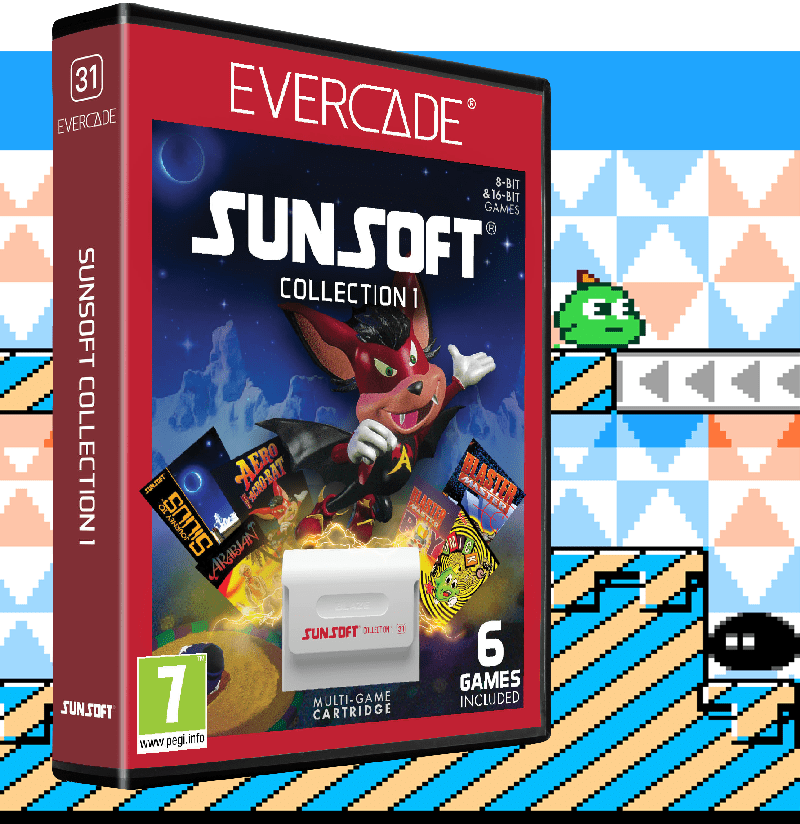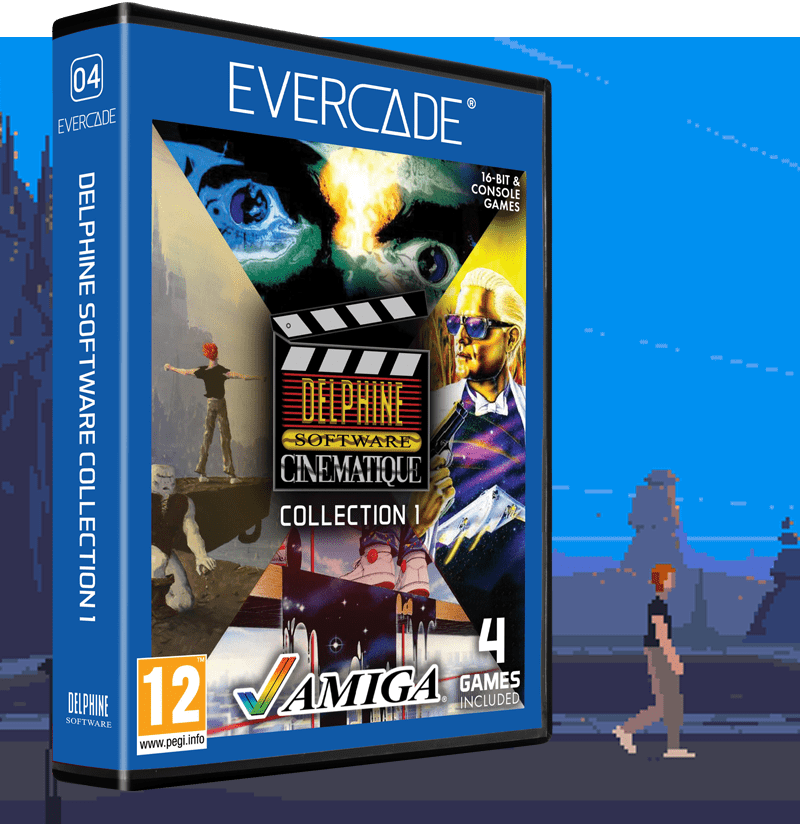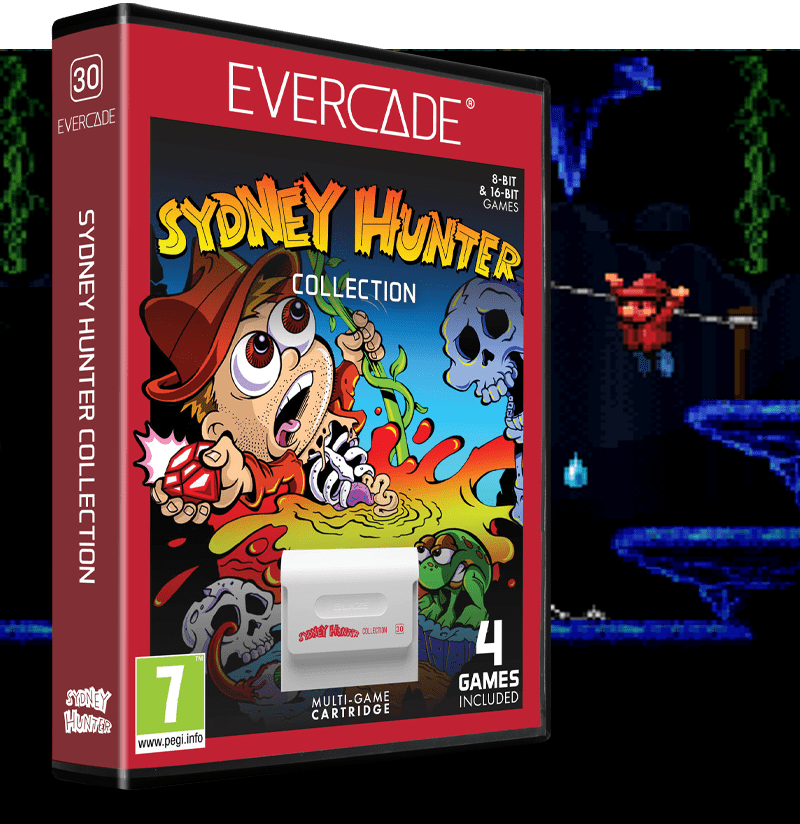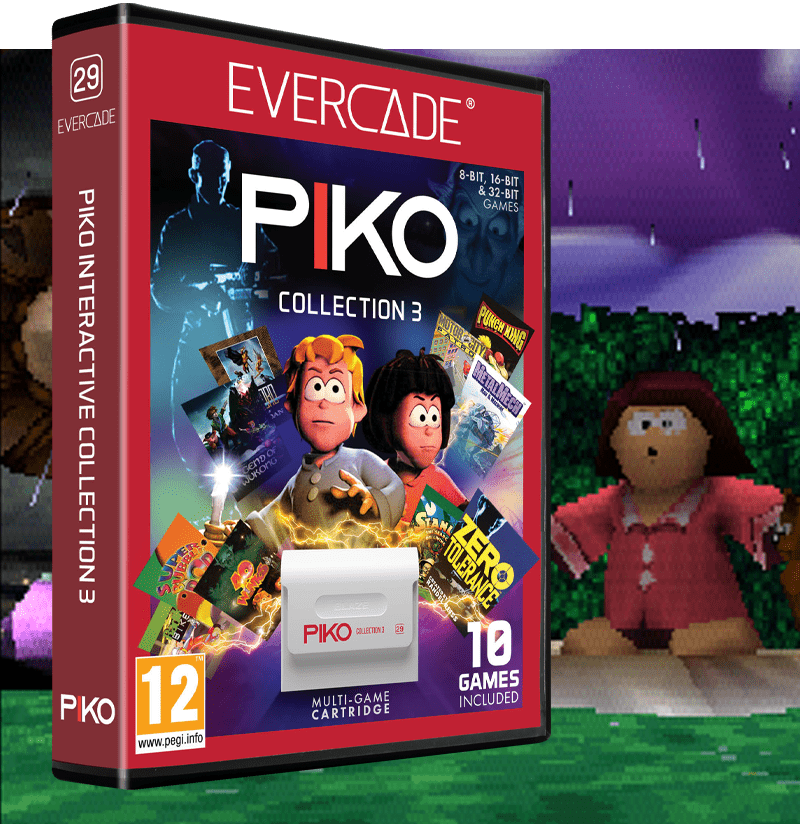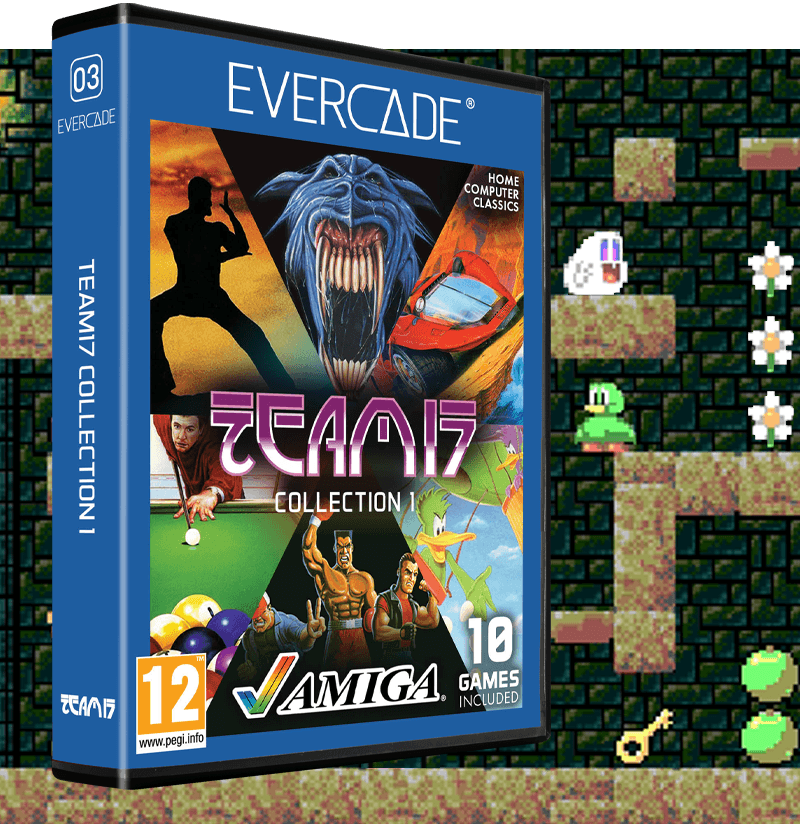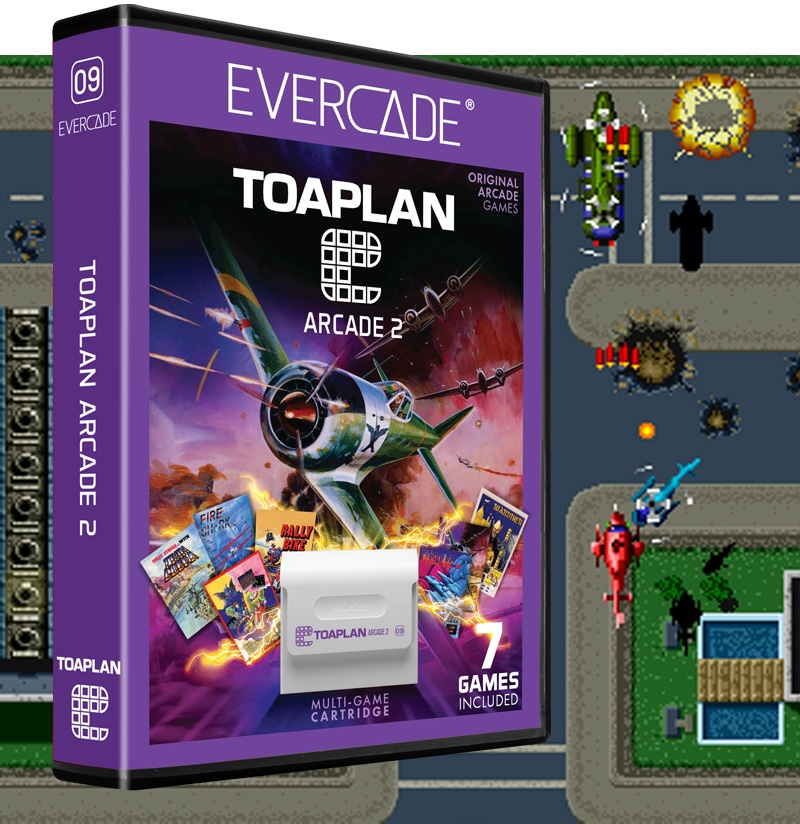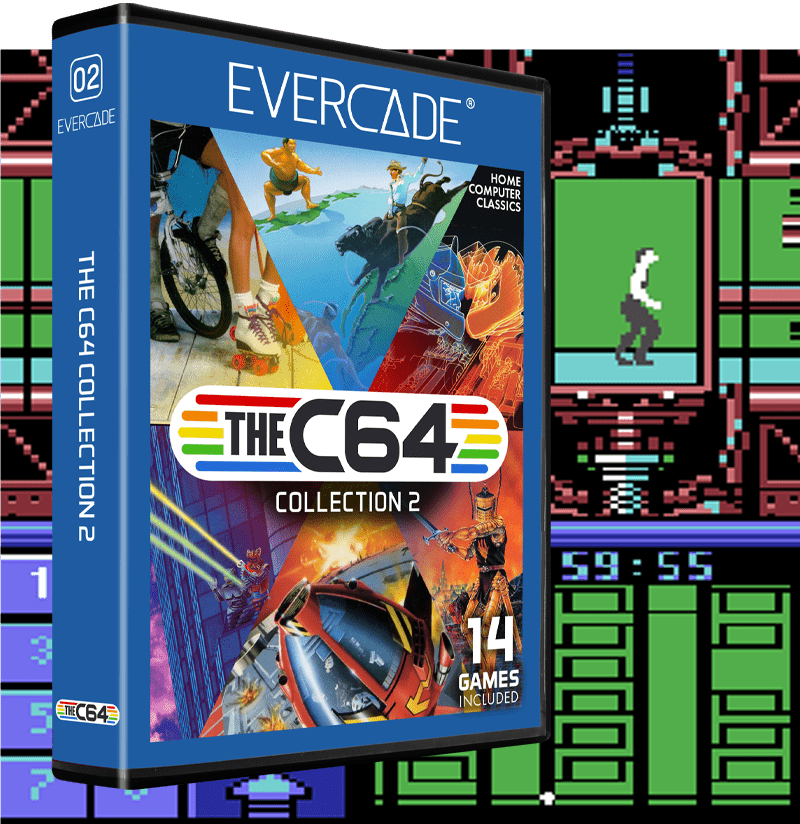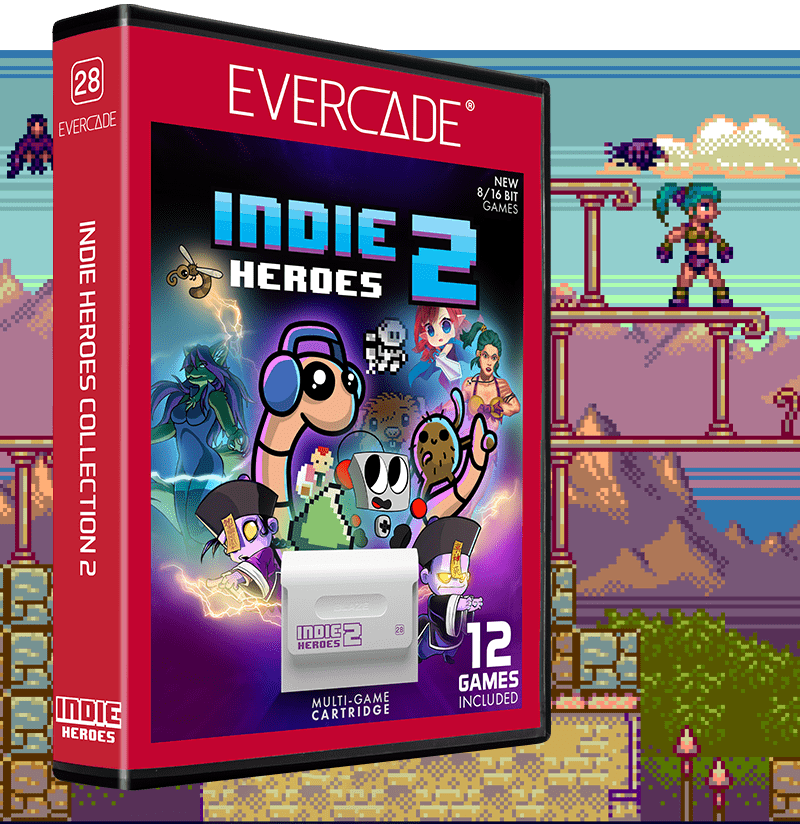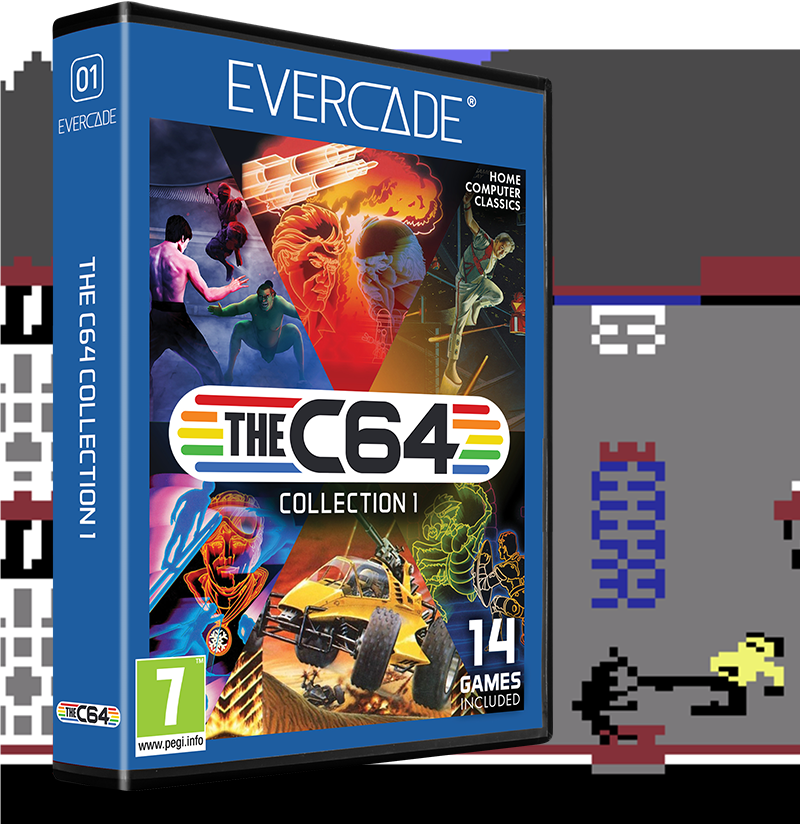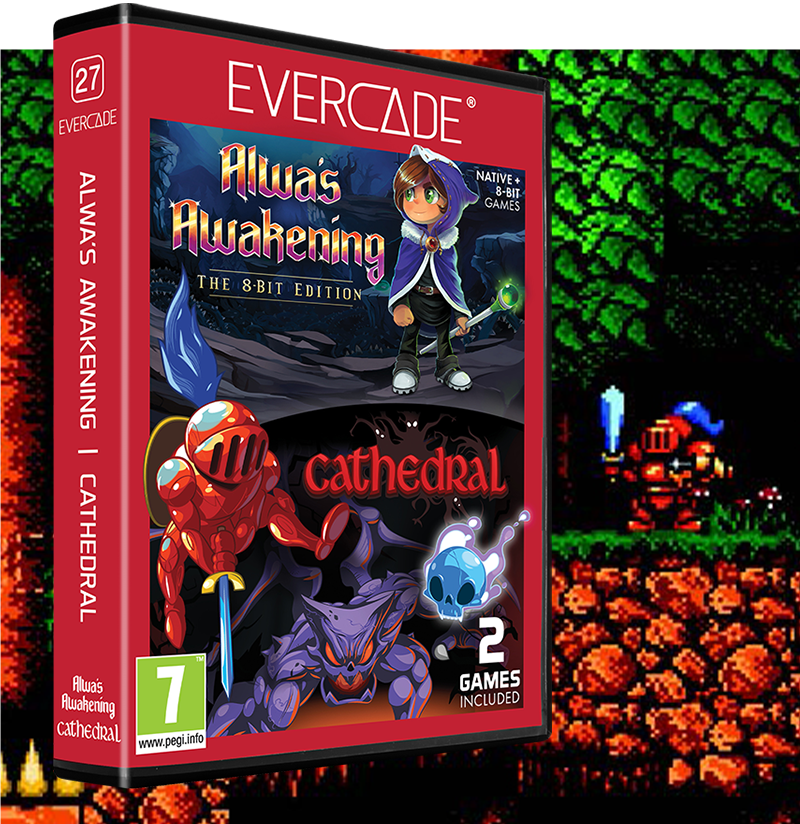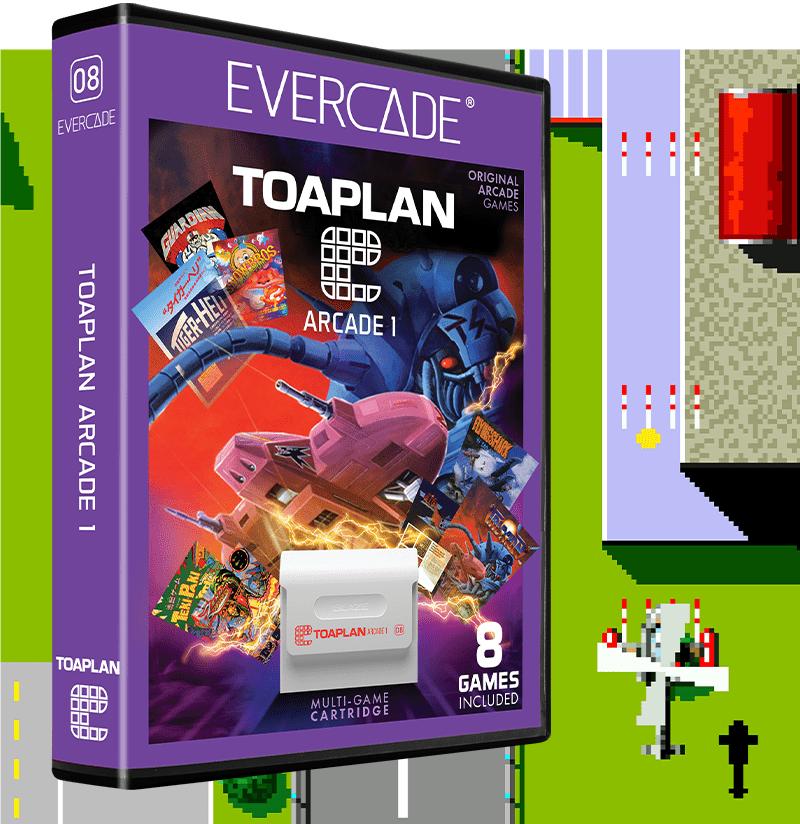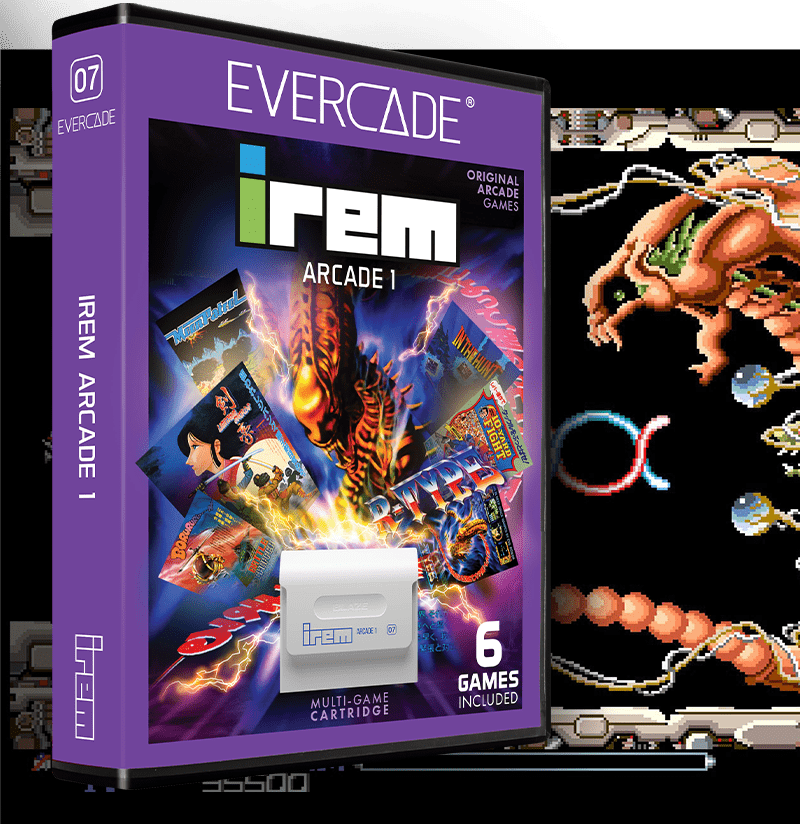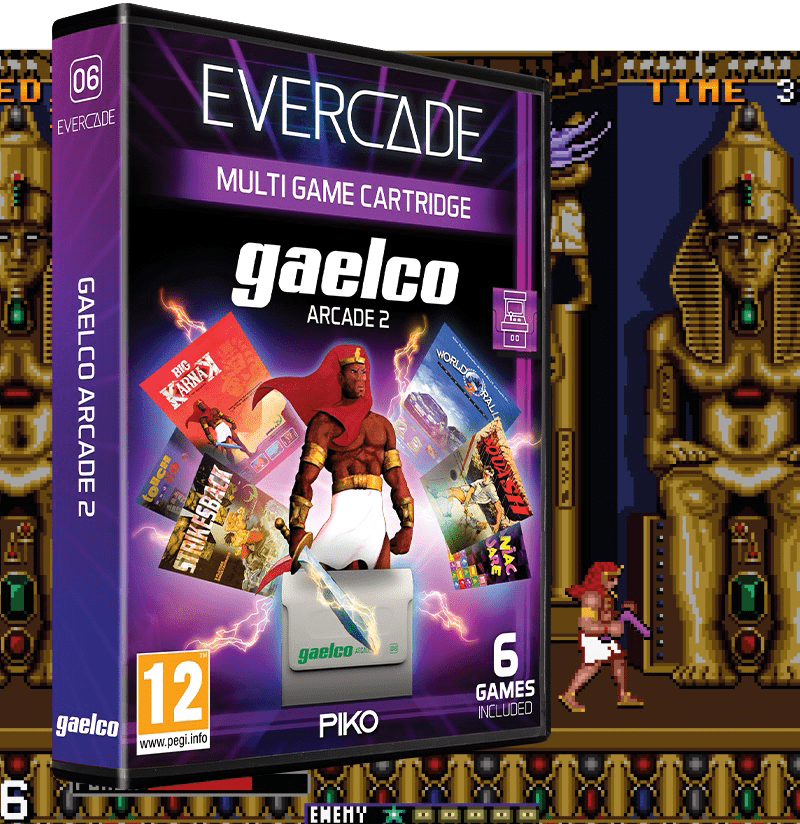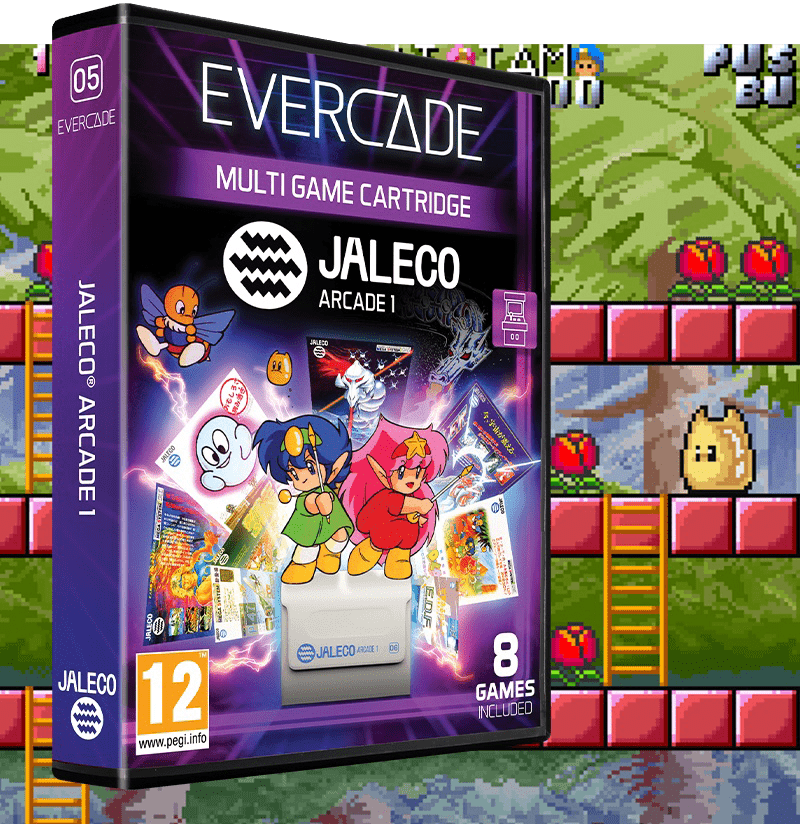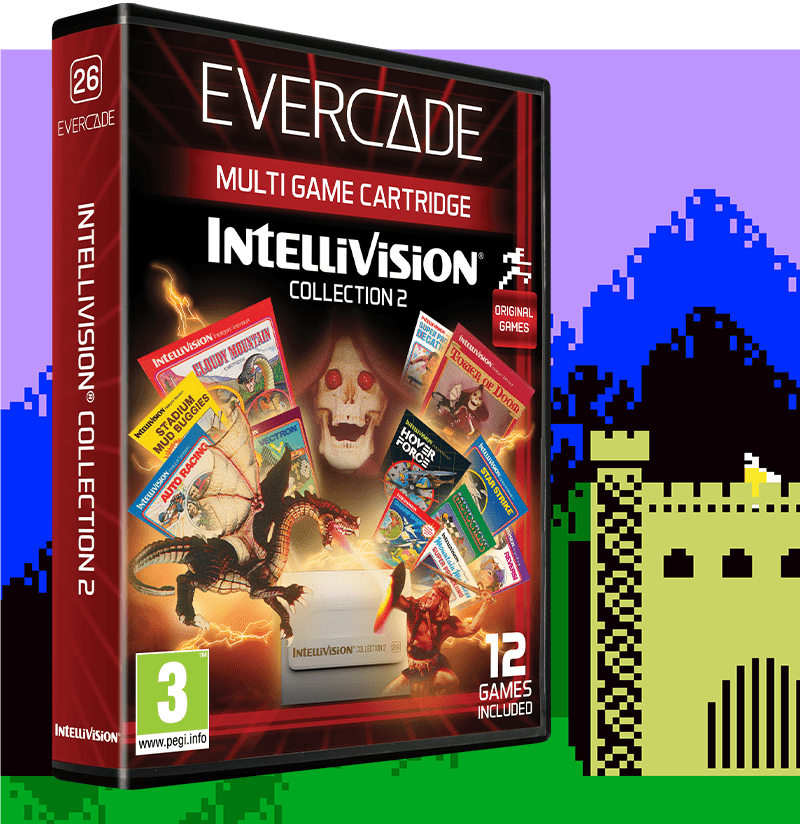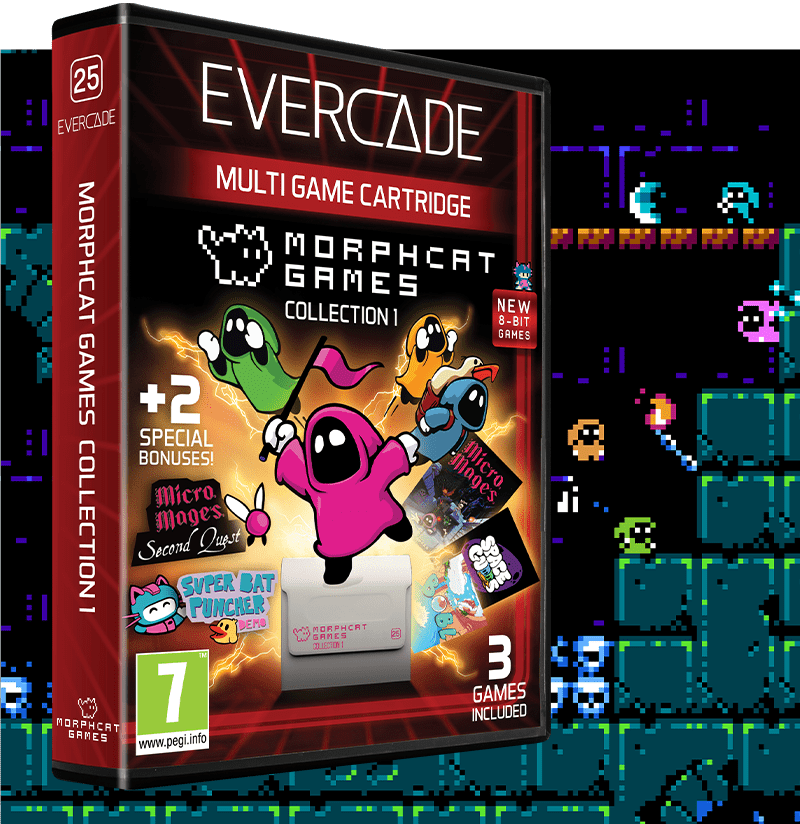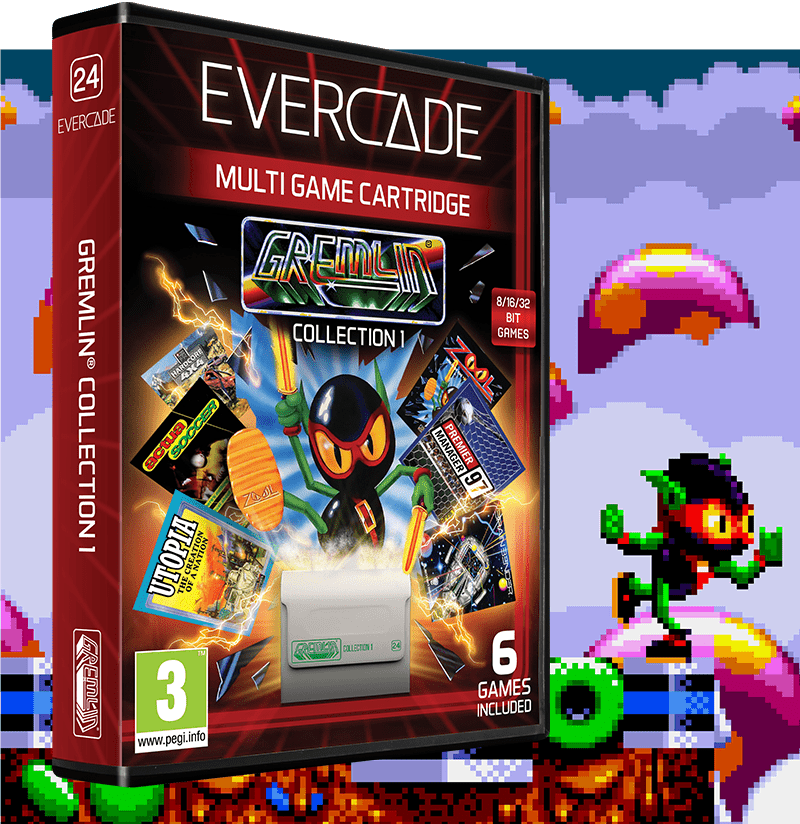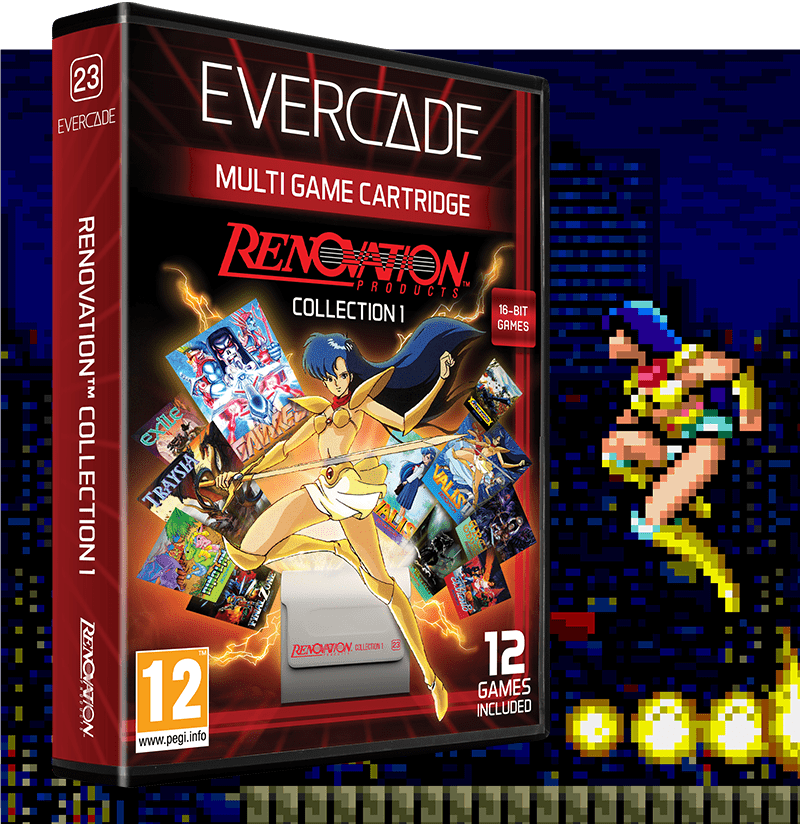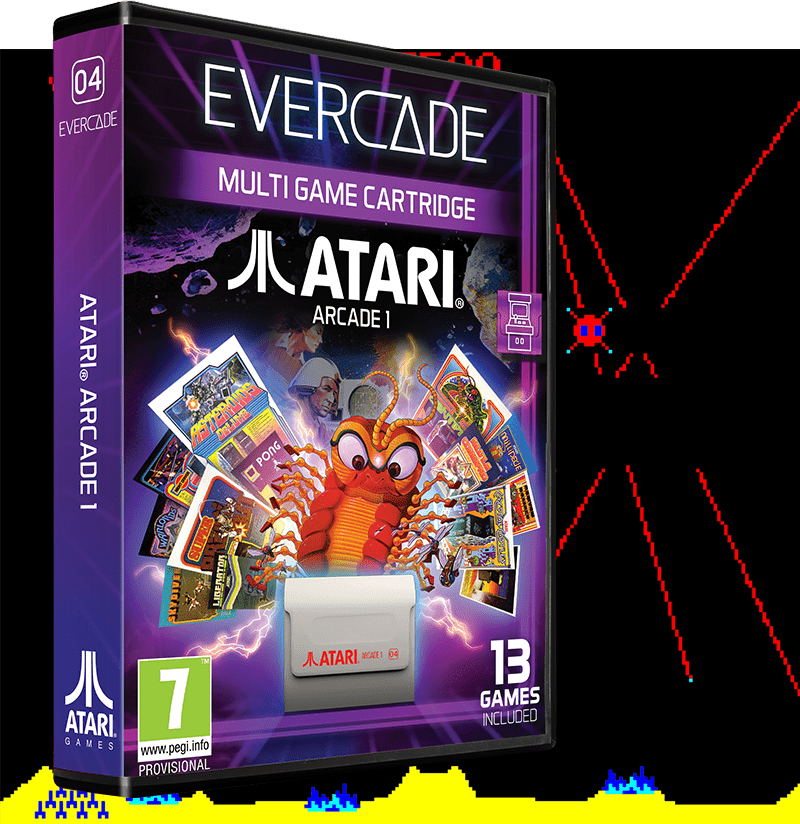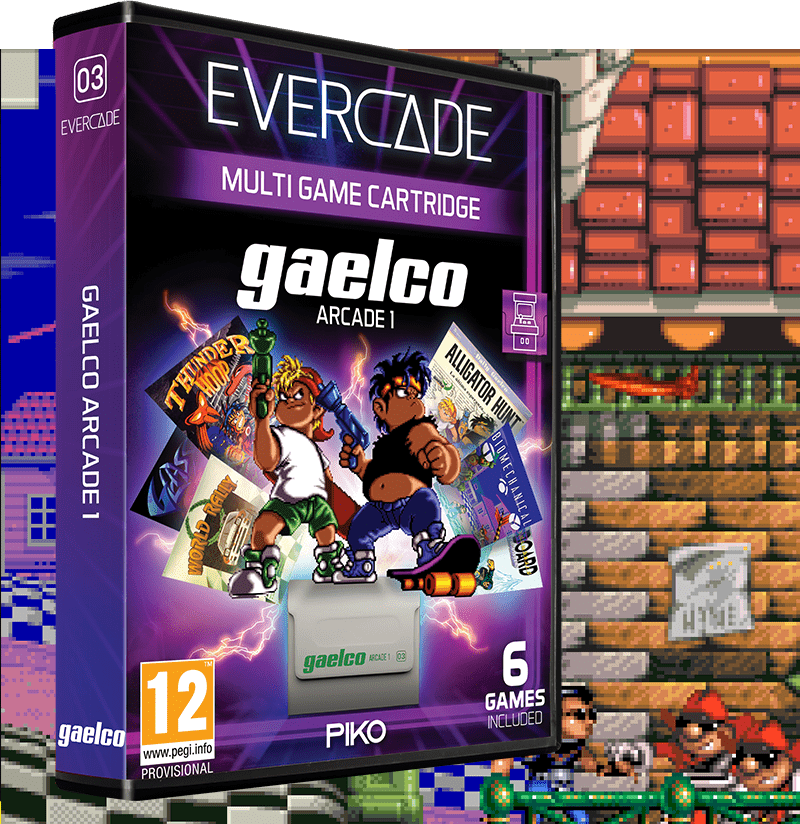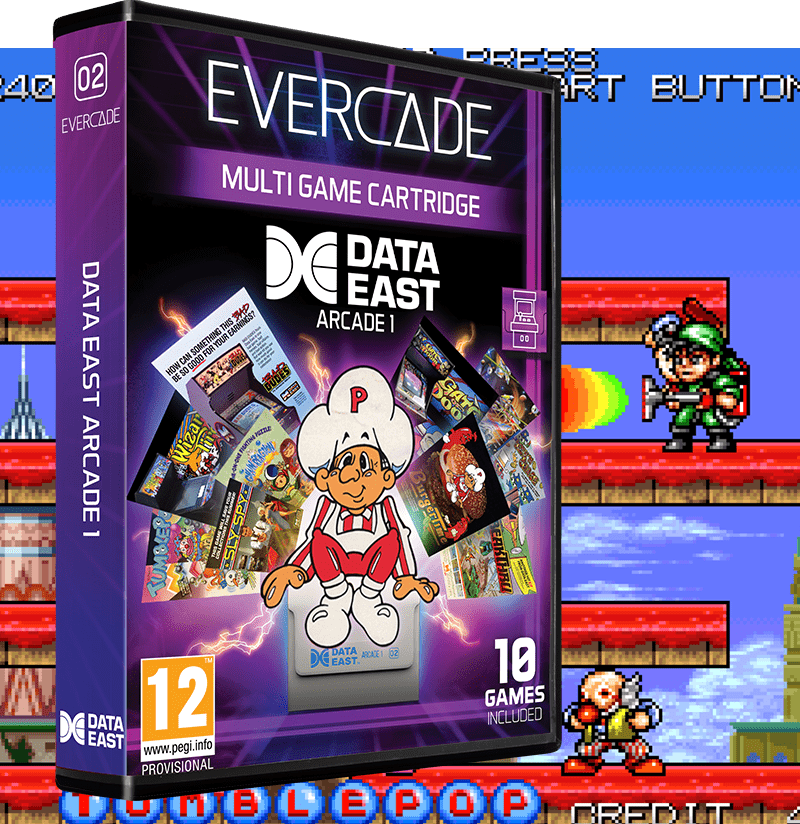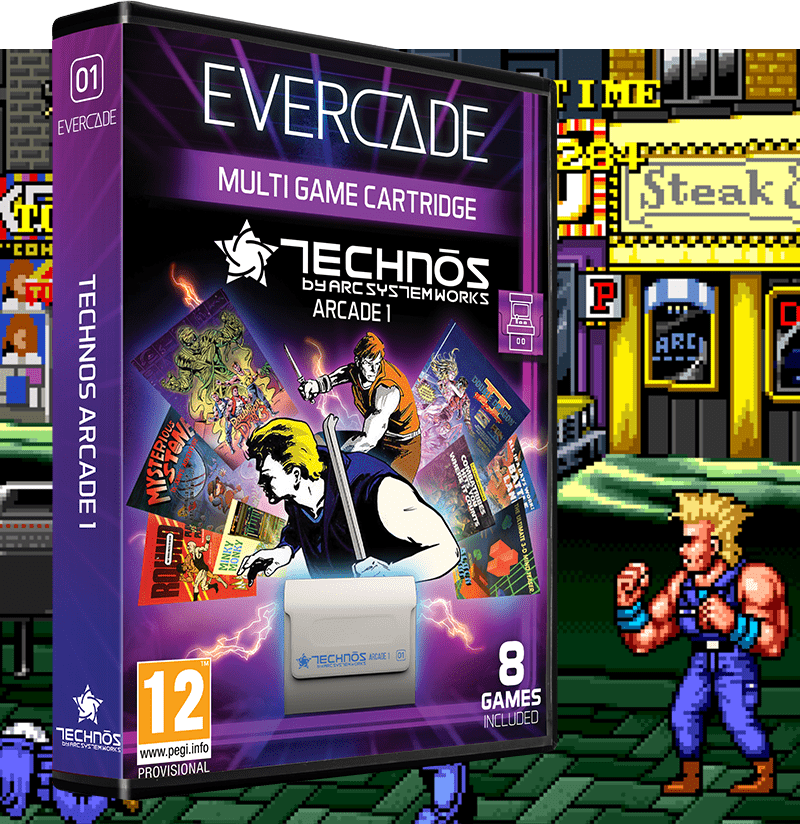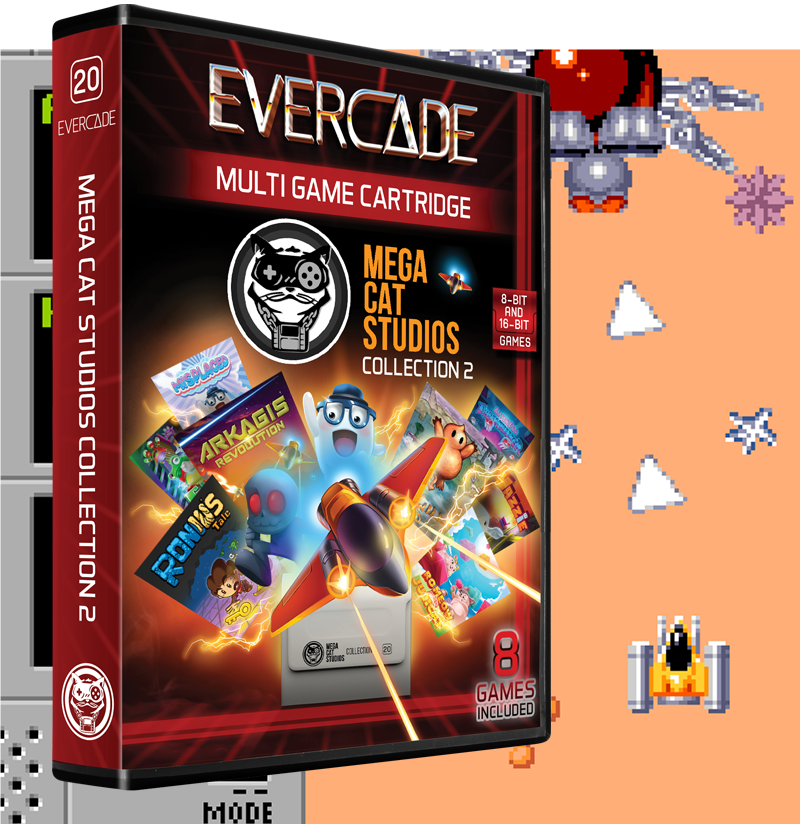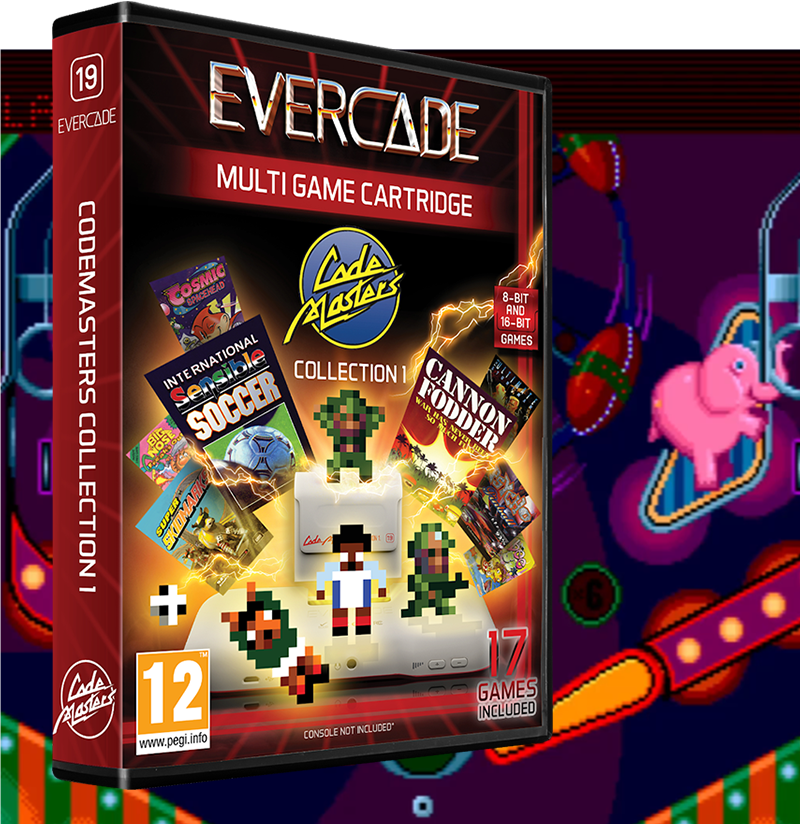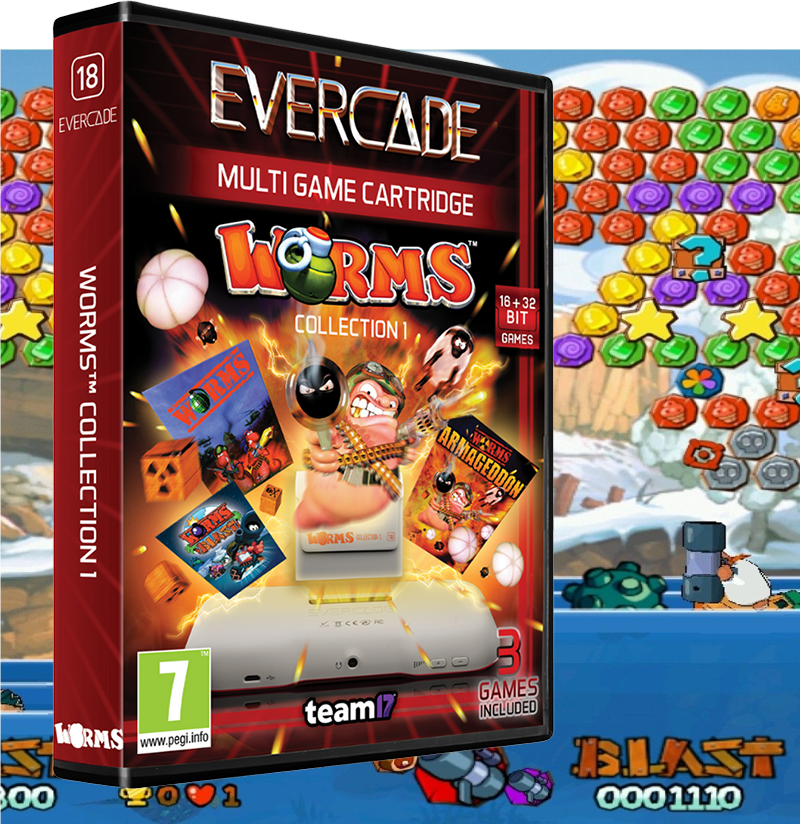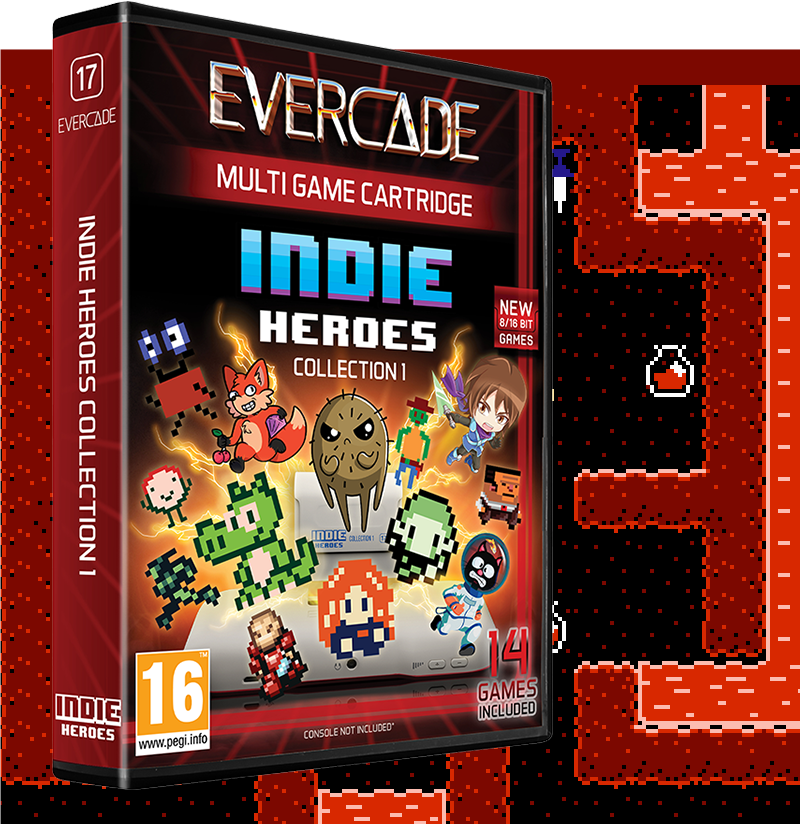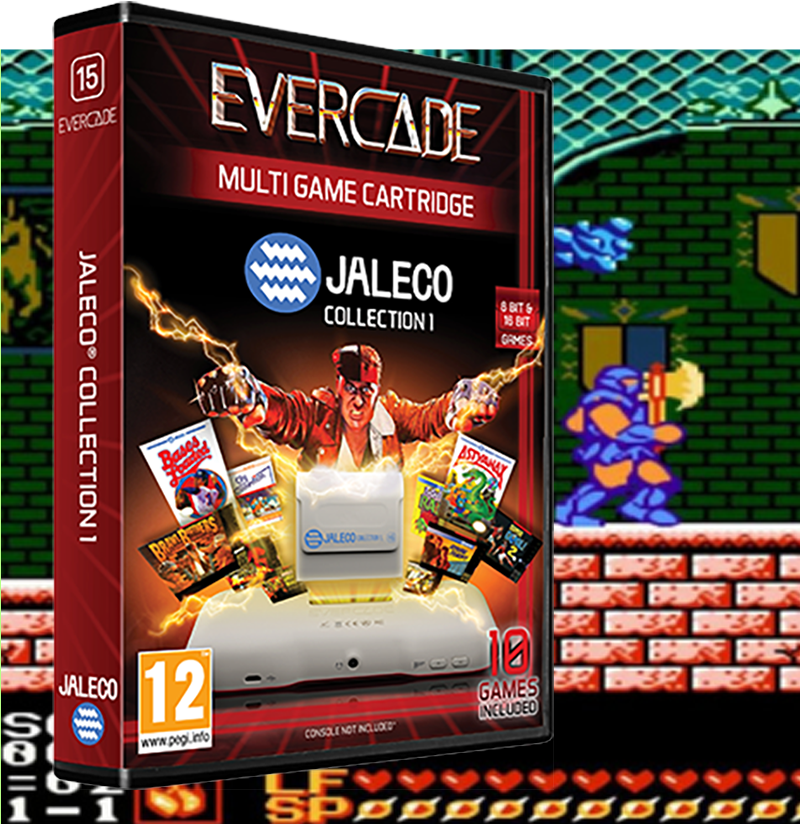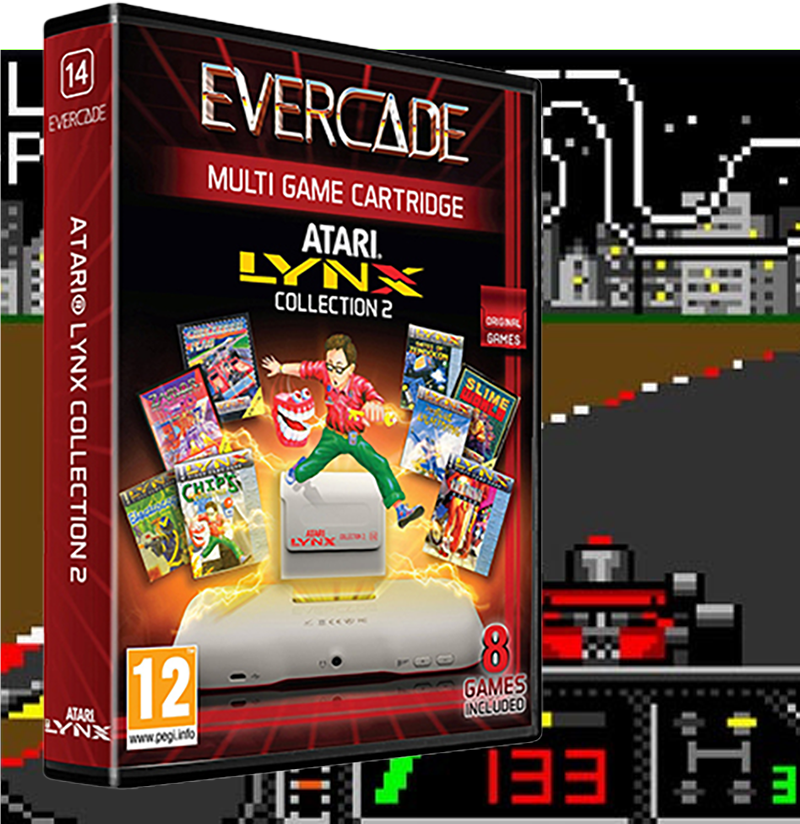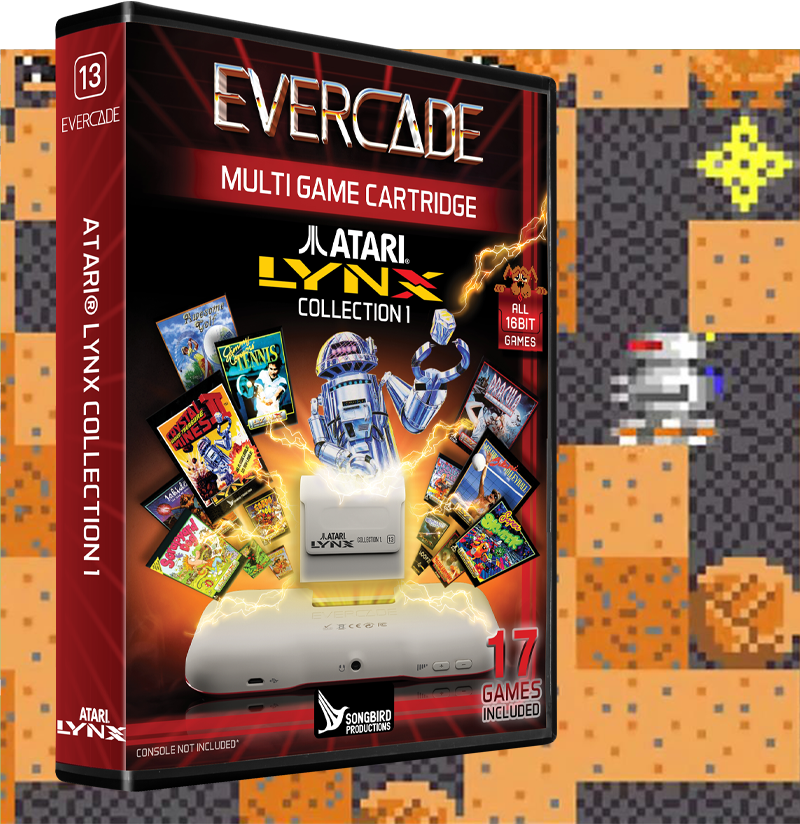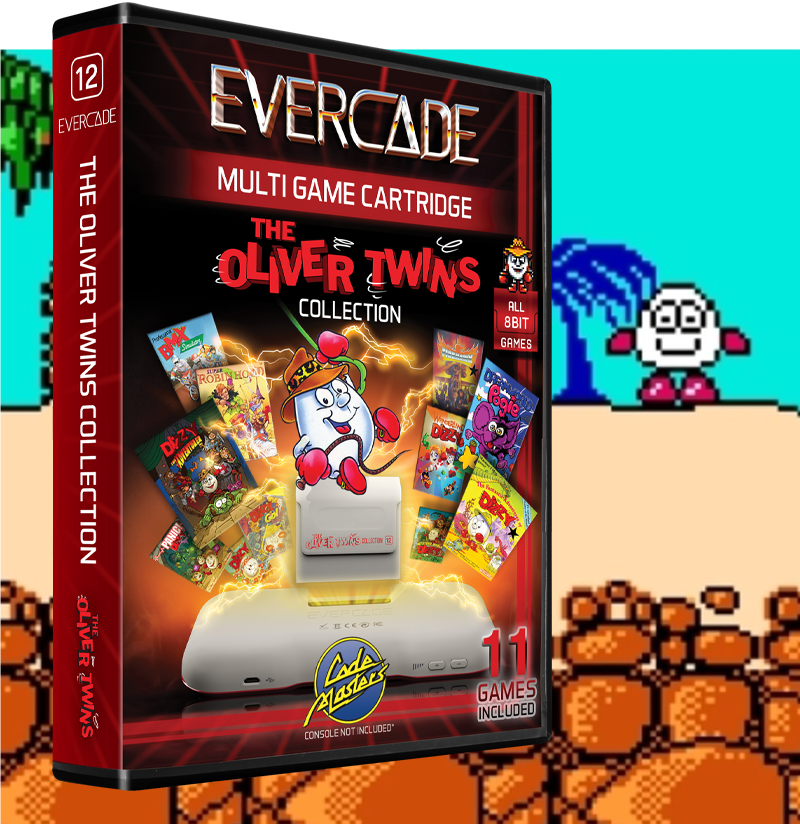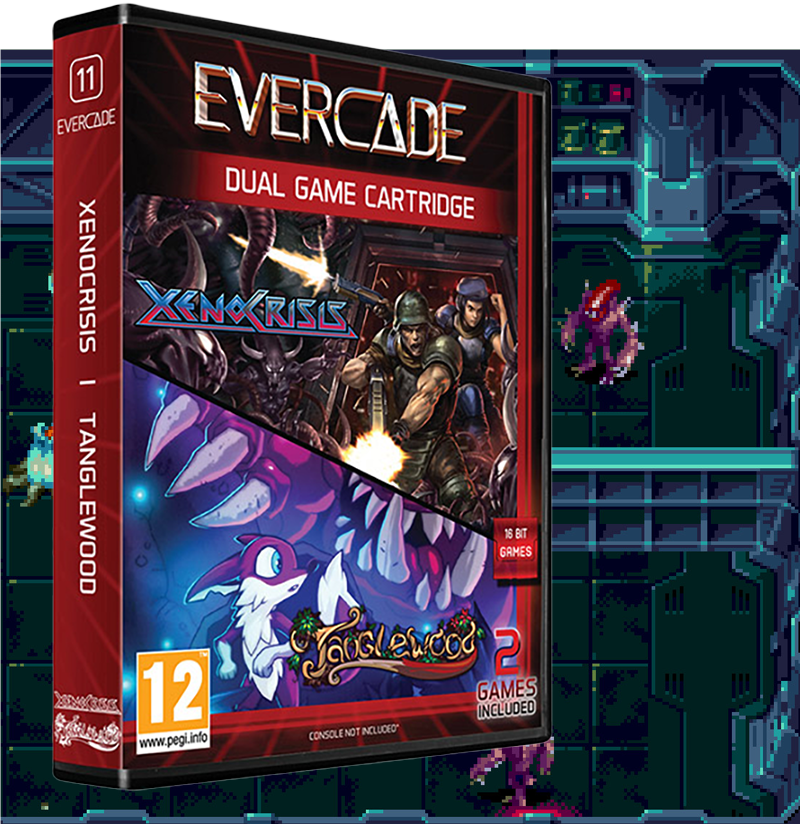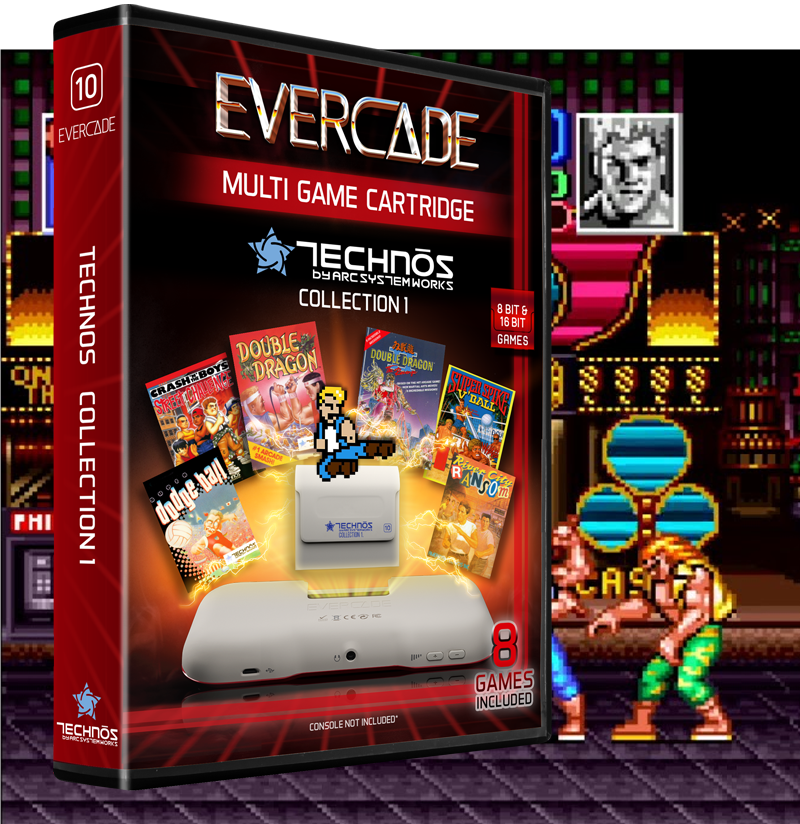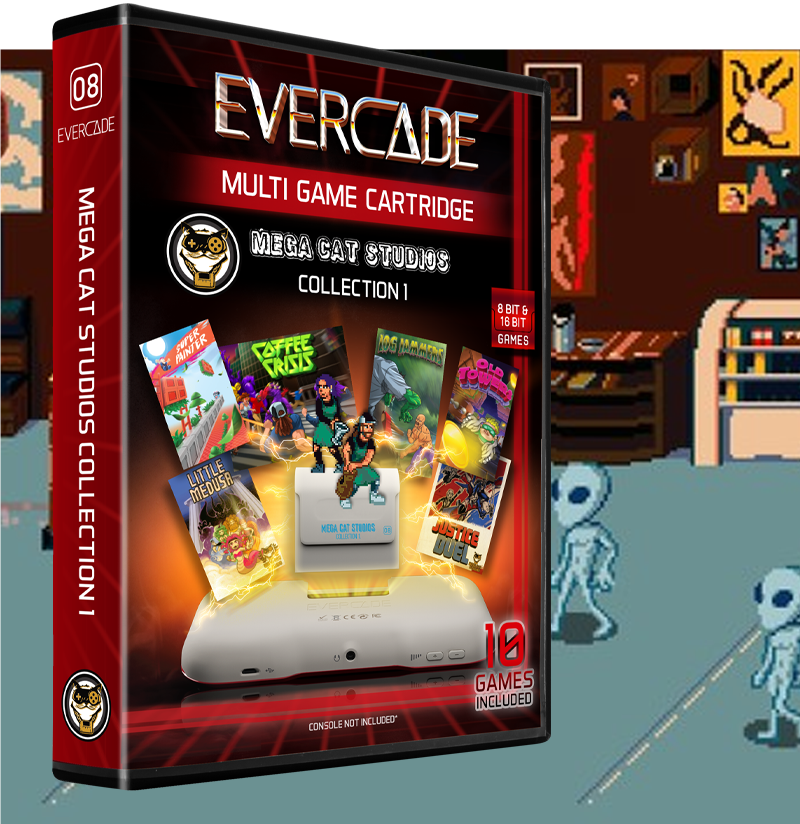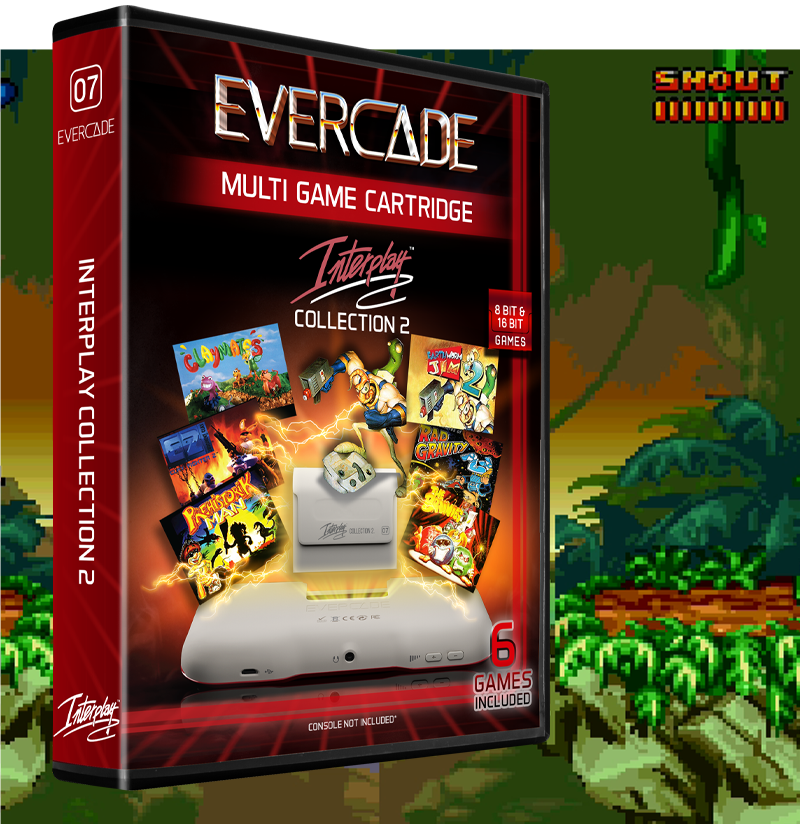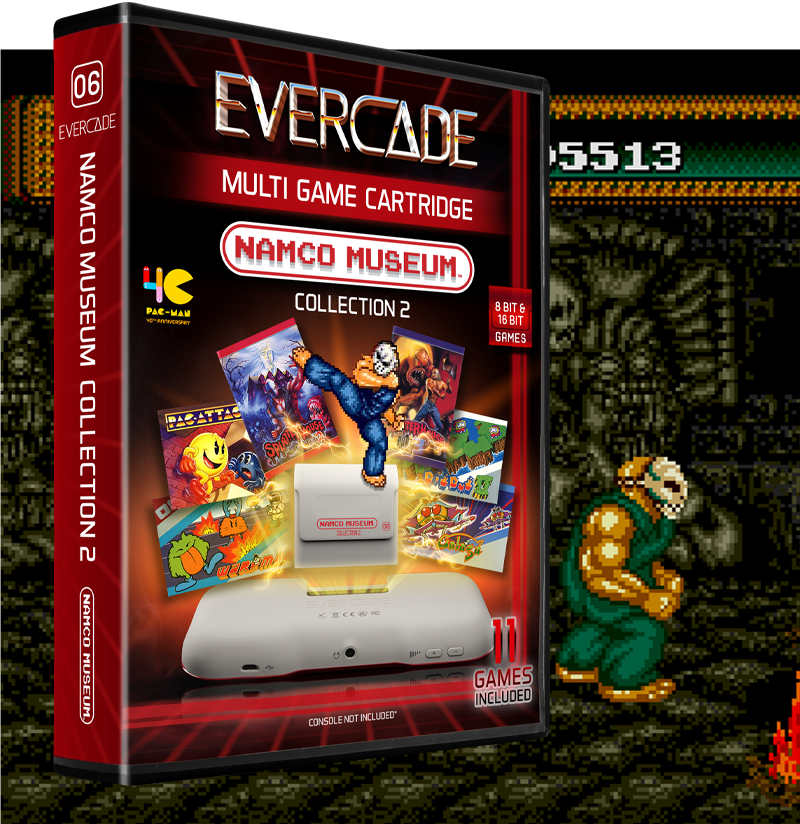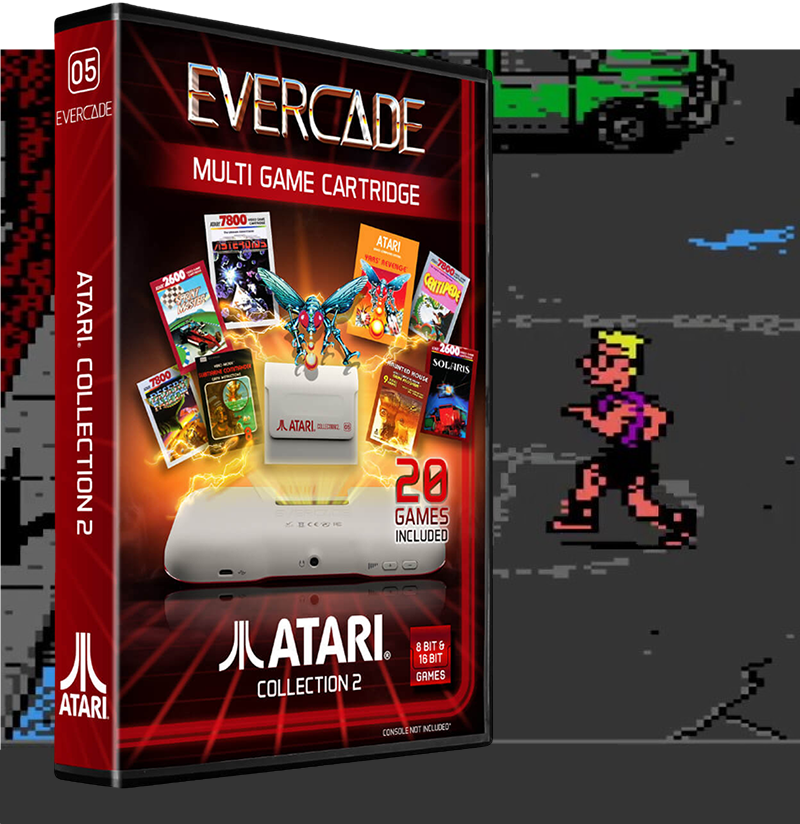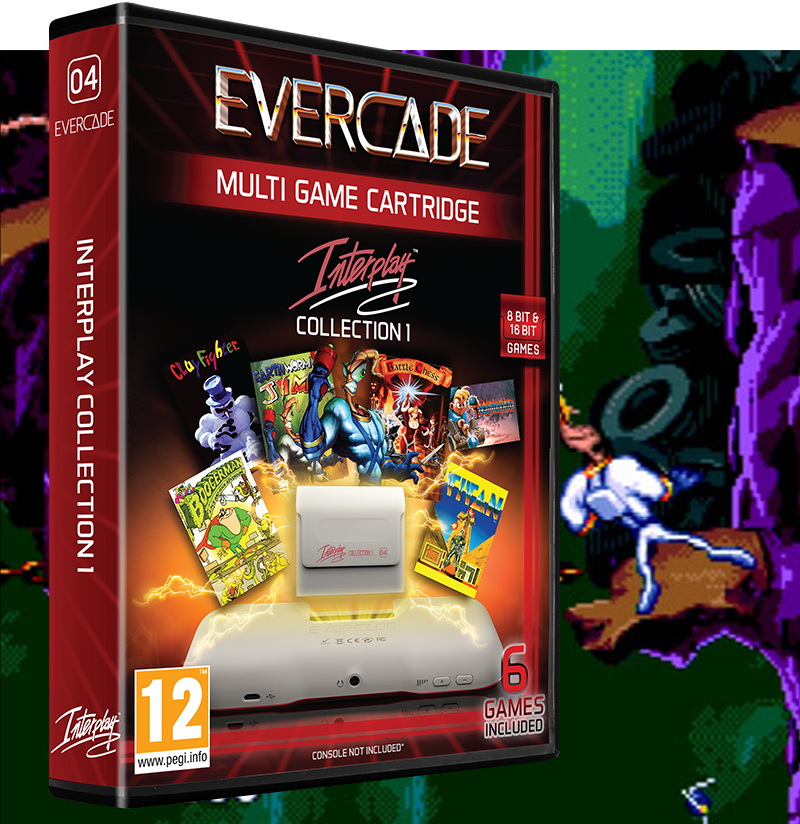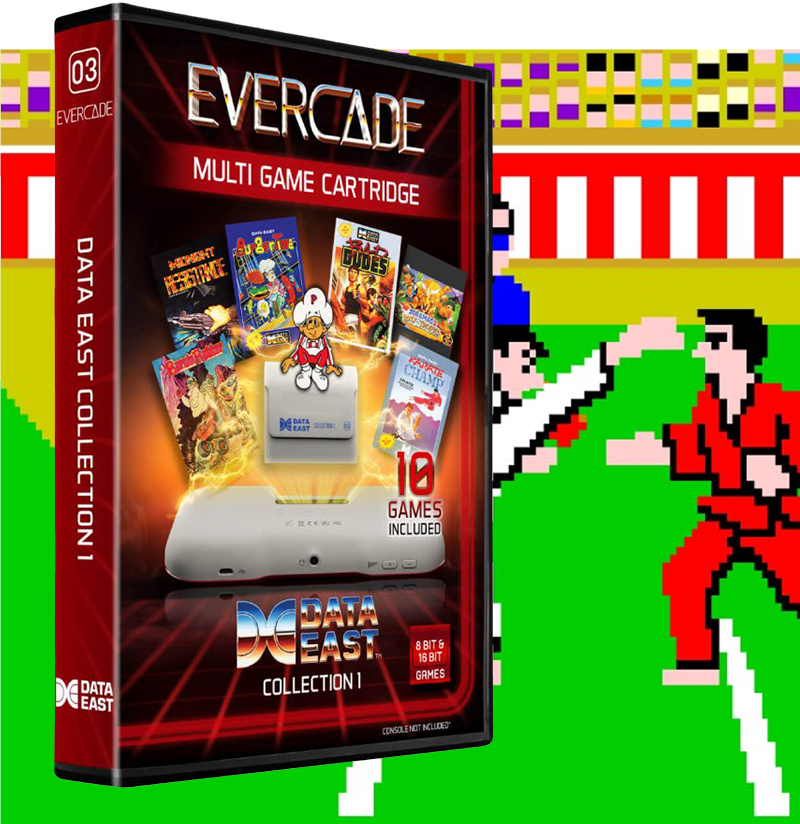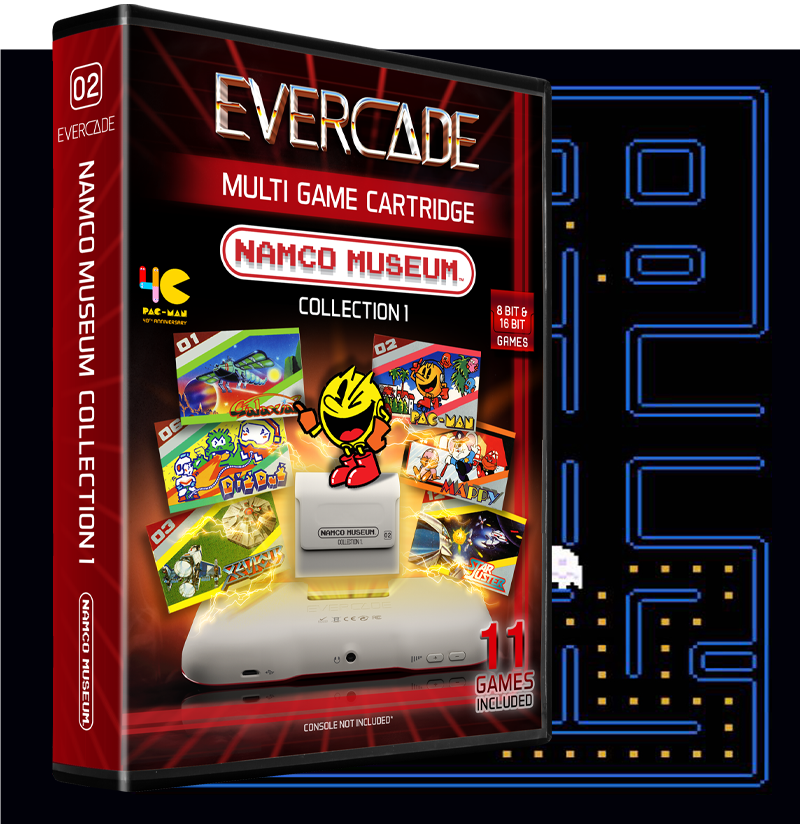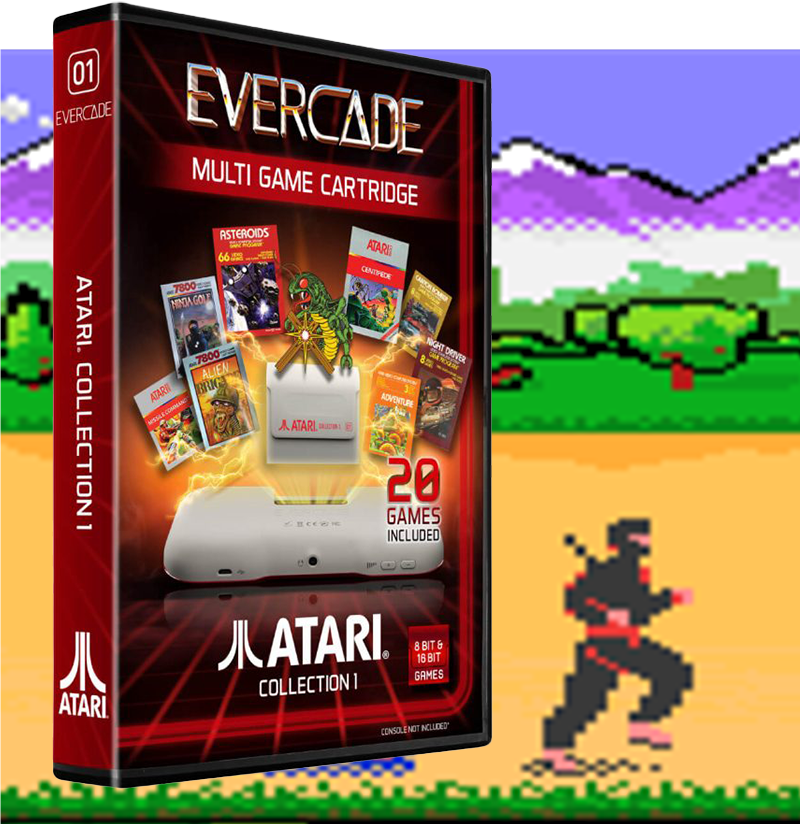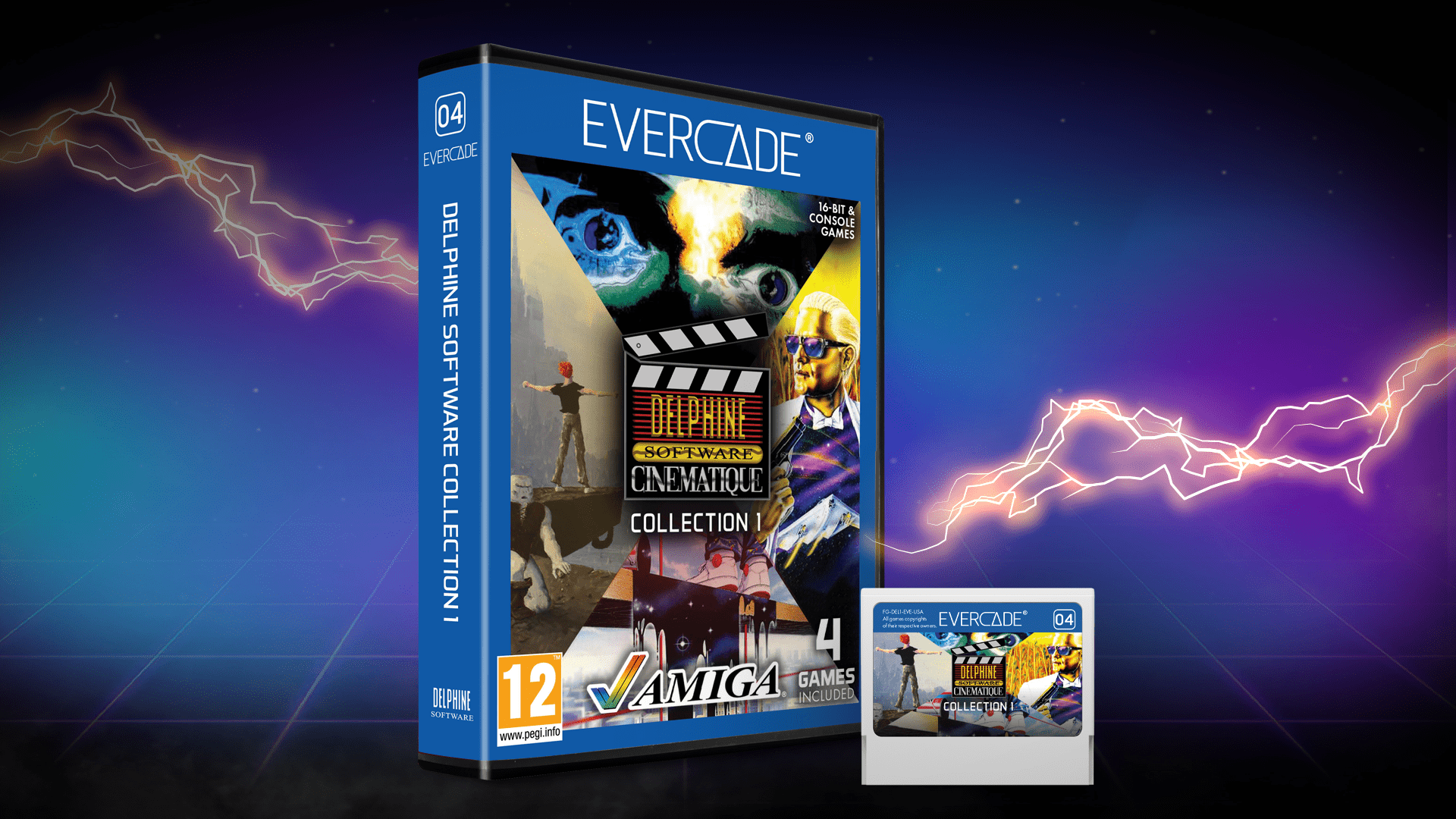
24
Aug
Evercade Cartridge Preview: Delphine Software Collection 1
We revealed Delphine Software Collection 1 and Sunsoft Collection 1 at our “Volume 1” showcase at the end of May, and we’ve already taken a look at the latter. So today it’s time for a quick preview of the former!
This package contains four great games that demonstrate Delphine Software’s desire right from its inception to create cinematically inspired interactive experiences. Over the years, the company’s exact approach to achieving this varied somewhat, but one thing remained constant: Delphine Software games could always be relied upon to be absolutely spectacular in terms of presentation when compared to their contemporaries. And the four games in this compilation are all great examples of that.
A brief history of adventures


Before we get to the specifics of the games in this collection, though, a bit of history. Because to understand and appreciate two of the games on this cartridge — Future Wars and Operation Stealth — it’s important to recognise that when the former first released in 1989, the adventure game genre was in something of a state of flux.
These two titles were among several games that helped revolutionise not only the entire adventure game genre, but the way in which we think about what video games were capable of as a creative medium.
In the early days of gaming, the term “adventure game” tended to refer to text-only games that demanded the player type things in using a computer keyboard. The earliest examples only recognised one- or two-word commands such as LOOK, TAKE ROD, THROW AXE and suchlike, and demanded that the player make considerable use of their imagination to picture what was going on in the scene.
As the 1980s progressed, though, several developers started experimenting with adding a visual element to these games. Purists scoffed, of course, believing that text-only games were for the truly intelligent people, but the addition of graphics helped make adventure games more accessible to a wider audience.
There was still the matter of how to interact with them, though. A lot of these more “visual” adventure games still required that the player type in commands for their on-screen avatar to perform, and sometimes those commands could be a little obtuse — particularly if you only had a vague idea of what you wanted to achieve, but not necessarily how to express it in a way that the computer would understand!


Enter the point-and-click interface, then, which completely replaced typing with the ability to click directly on the game’s visual elements and choose one of several verbs from a clear, easy-to-understand list. This revolutionised the adventure game genre, not only in terms of how players interacted with it and an overall sense of accessibility, but also in how ambitious game creators could get with their visual storytelling.
Adventure games were taking their first, bold steps towards becoming truly interactive movies — and while the point-and-click adventure genre itself is much less widespread today than its heyday in the late ’80s and early ’90s, the genre’s influence can still be strongly felt in the cinematic presentation of today’s big-budget blockbusters.
Future Wars and Operation Stealth were not the first games to make use of a point-and-click interface, but they were good examples — and Delphine Software had grand ambitions of what they could achieve using this style of presentation and interaction.
Future Wars: Time Travellers


The first of what Delphine dubbed its two “Cinematique” games has a humble opening: you play a window cleaner, suspended halfway up a building and having a moderately bad day.
Things only get worse from there, though, because after playing a prank on your rather unpleasant boss, you find yourself taking a bit of an accidental trip through time, culminating with you teaming up with freedom fighters from the future battling against an alien threat.
Along the way, you’ll need to interact with various characters, solve a variety of puzzles and do your best to keep from being horribly killed in a variety of strange and unexpected ways. Time travelling is dangerous business, so you’ll want to make good use of the Evercade save game feature as you progress through your adventure!
You interact with Future Wars using Delphine’s Cinematique engine, which allows you to move a cursor around the screen, click on objects and pop up a verb list to interact with them. In classic adventure game style, you’ll need to acquire new objects from the various places you explore, hold them in your inventory for later use and bring them out when you think they might be handy. It’s all very intuitive to control, and we’ve made sure that it works great with the Evercade controller.
As a story-centric game, to say too much more about what to expect from Future Wars is to spoil the experience somewhat, so for now we’ll just offer you one handy tip: look closely at every scene, because sometimes even the smallest, most insignificant-looking object can be the key to progression!
Operation Stealth
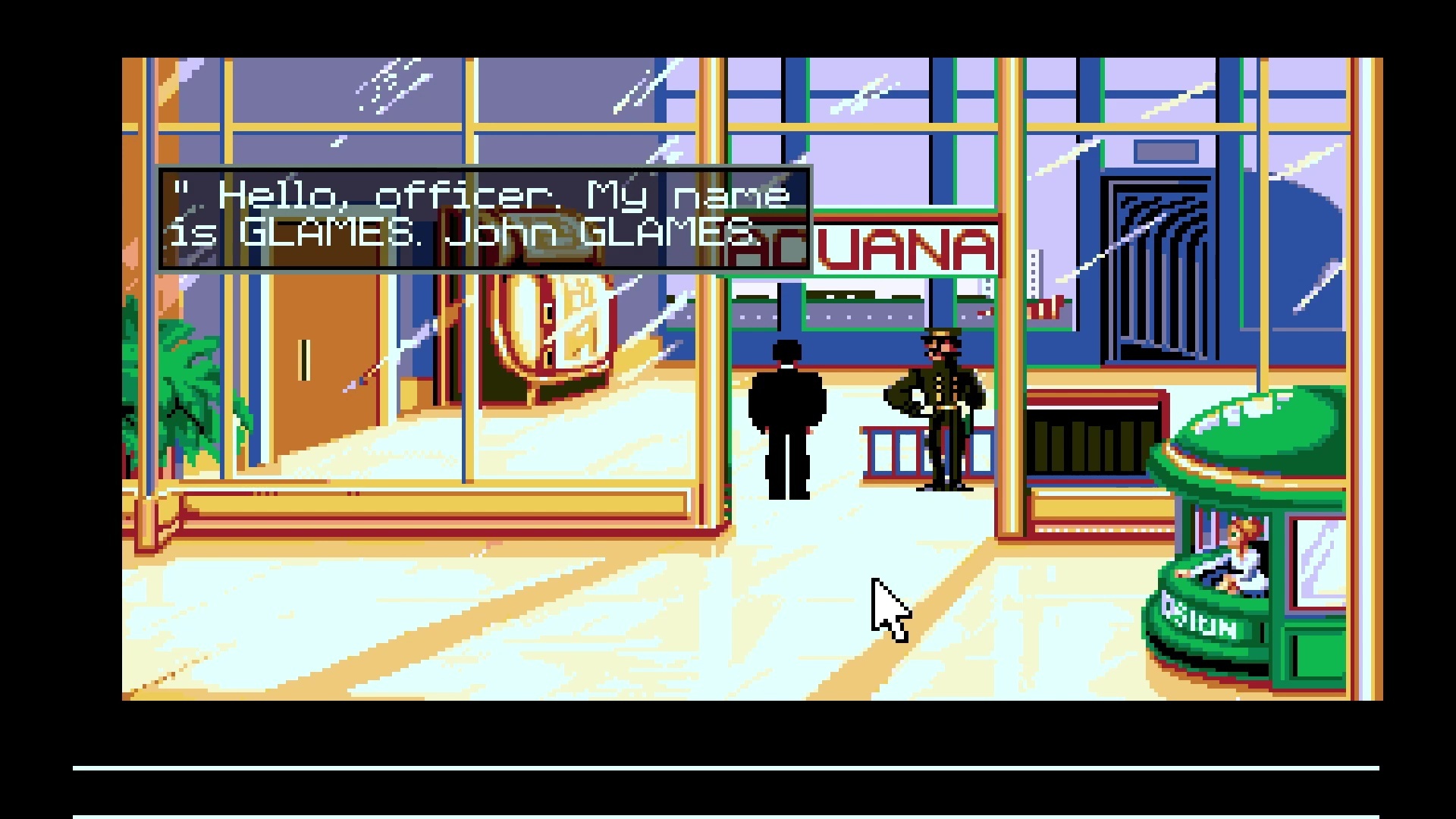

Originally released a year after Future Wars, Operation Stealth makes use of the same Cinematique engine for intuitive point-and-click control, but adopts a completely different setting and style for its narrative. This time around, we swap a fantastic sci-fi adventure for a tale of espionage — in fact, on its original North American release, Operation Stealth even had a James Bond license, despite this making absolutely no sense with the CIA-centric narrative.
Taking on the role of agent John Glames, your stated mission is to determine what has happened to an experimental F-19 stealth fighter that appears to have been pilfered from right under the American government’s nose. Things are, of course, considerably more complicated than a simple theft, so you’ll find yourself unravelling a series of mysteries as you progress through the game, the stakes gradually escalating as you go.
Operation Stealth features not only similar point-and-click adventuring to Future Wars, but also several unique quasi-action sequences at various points in the narrative — and yes, we’ve made sure they work fine with the Evercade controller. You’ll need brains, brawn and agility to solve this one — but one would expect nothing less from a globetrotting secret agent adventure.
Another World


One of Delphine Software’s most well-known games, Another World was revolutionary on its original 1991 release for the way it blended classic pixel art with polygonal characters and scenery elements. The result was a game with an incredibly distinctive art style and wonderfully fluid animation.
In Another World, you take on the role of Lester Chaykin, a particle physicist whose latest experiment has gone very wrong indeed. Seemingly blasted through time and/or space into an unfamiliar environment, Lester finds himself confronted with a stream of incredibly dangerous situations, and it’s up to you to help him out.
You’re not completely alone, though; once you clear Another World’s iconic opening sequence, you’ll spend a chunk of the game accompanied by a companion from the game’s alien race, who will support you in various ways. You’ll need to protect him, though, because he’s just as vulnerable as Lester is!
Another World’s gameplay is varied, interesting and enormously challenging — don’t be too proud to use that save game function on this one! It’s noteworthy for its completely wordless storytelling, and for its minimal, HUD-free presentation — quite unlike anything else around at the time of its original release, and still absolutely beautiful to look at to this day.
Flashback


A spiritual successor rather than a direct sequel to Another World, Flashback is a cinematic platformer with amazing animation, a compelling story and well-designed gameplay that builds on its precursor’s firm foundation.
Taking on the role of Conrad Hart, a man who wakes up in a strange jungle devoid of his memories, it’s your job to get to the bottom of a mystery that involves aliens attempting to take the place of humans on Earth. Along the way, you’ll run, jump, shoot, solve puzzles… and probably meet more than a few sticky ends along the way, too.
In contrast to Another World’s rather abstract presentation, Flashback features an extremely well-realised game world filled with interesting lore and characters to interact with — and the story has actual words in it this time. Each of the game’s levels is vast and filled with many varied challenges for you to complete, with each having a very distinct theme and feel from the last; many feel like a self-contained game in their own right.
After escaping the jungle, for example, you’ll find yourself working part-time jobs in a futuristic city in an attempt to gather information and funds for a trip back to Earth — and from there, you’ll have to compete in a deadly game show that would make Arnie proud, traverse the mean streets of an Earth in danger and… well, you’ll have to wait and see, won’t you?
Delphine Software Collection 1 is set for release on September 28, 2023. Find out more and preorder here!
